M
I
C
R
O
S
T
O
R
Y
O
F
A
R
T
........................................................
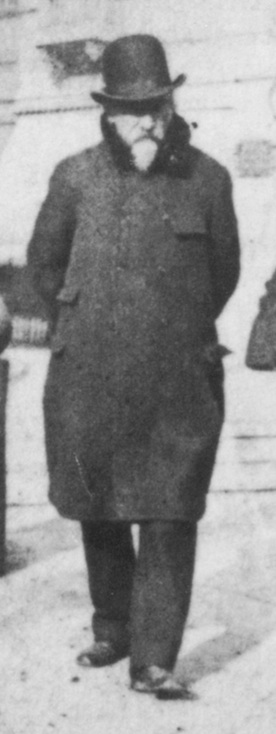
NOW COMPLETED:
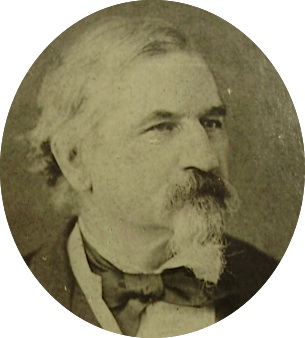
........................................................
MICROSTORY OF ART
ONLINE JOURNAL FOR ART, CONNOISSEURSHIP
AND CULTURAL JOURNALISM
........................................................
INDEX | PINBOARD | MICROSTORIES |
FEATURES | SPECIAL EDITIONS |
HISTORY AND THEORY OF ATTRIBUTION |
ETHNOGRAPHY OF CONNOISSEURSHIP |
SEARCH
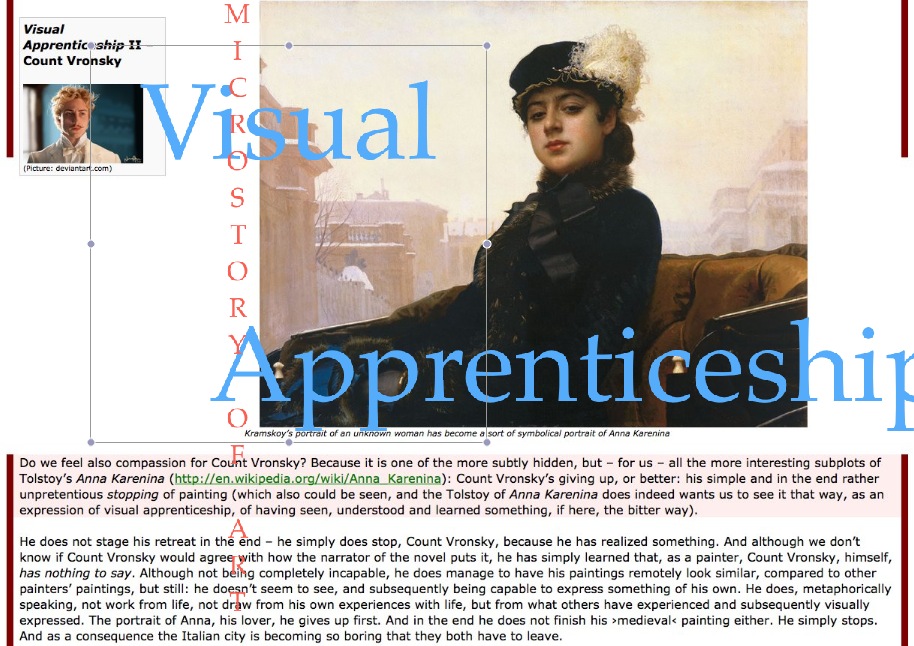
........................................................

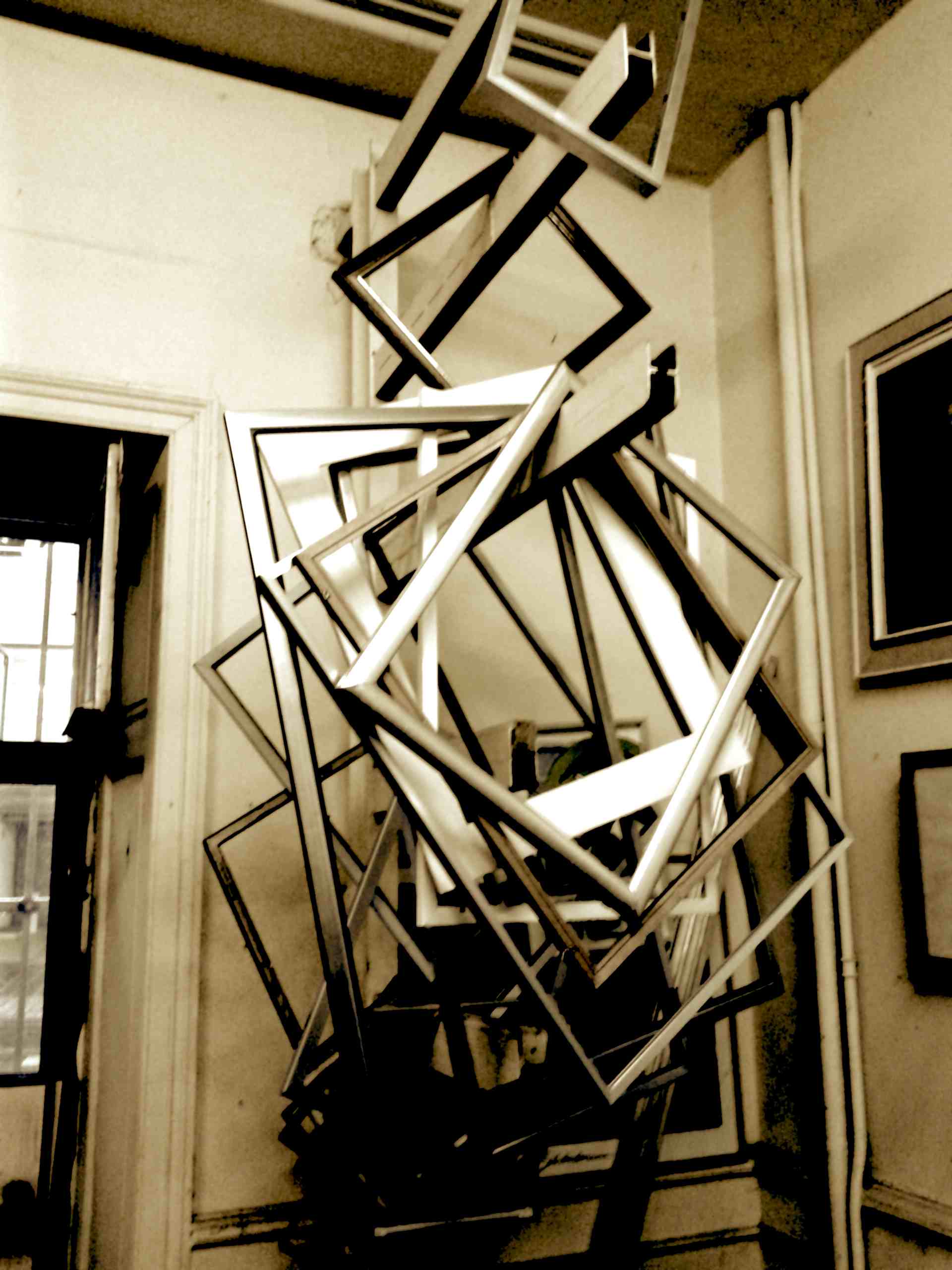
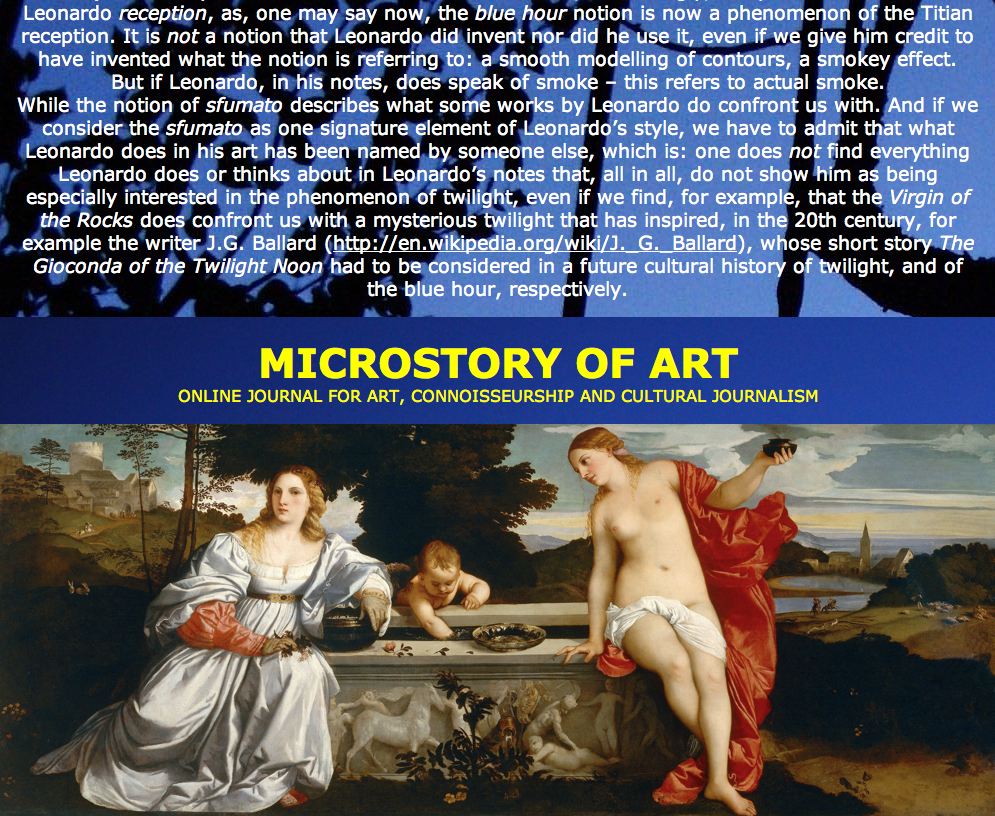
 >MICROSTORIES
>MICROSTORIES
- Richard Serra
- Martin Scorsese
- Claude Simon
- Sunshine
- Werner Herzog
- The Creation
- Marcel Duchamp
- Nino Rota
- Wölfflin and Woolf
- Hansjörg Schneider
- Kraftort Arkadien
- Visual Biography
- Schlaraffenleben
- Die Geisteswissenschaften
- The Voyeur
- Buzzword Sustainability
- Paul Verlaine
- Tao Yuanming
- New Beginning
- Seneca
- Still Lifes
- Charles Baudelaire
- Frédéric Chopin
- The Art History of Sustainability
- Wang Wei
- Solarpunk
- Historians of Light
- Lepanto
- Renaturalization
- Plates
- Snow in Provence
- Learning to See
- Picasso Dictionaries
- Peach Blossom Spring
- Picasso Tourism
- Tipping Points
- Sviatoslav Richter
- Weather Reports
- Treasure Hunt
- Another Snowscape in Picasso
- Picasso in 2023
- Dragon Veins
- The Gloomy Day
- The Art of the Pentimento
- Reforestation
- The Status of Painting
- Emergency Supply
- Punctuality
- Watching Traffic
- Zhong Kui
- How Painting Survived the 1990s
- Confirmation Bias
- Sustainability and Luxury
- Garage Bands
- Picasso and Artificial Intelligence
- Eyes of Tomorrow
- Picasso in 2023 2
- Gluing Oneself to Something
- Suburbia
- Bamboo
- Sustainability and Carpe Diem 1
- Interviews with Bruegel
- Sustainability and Carpe Diem 2
- Coffee & Sugar
- Bamboo 2
- Picasso in 2023 3
- Sustainability and Carpe Diem 3
- Cherry Orchard
- Old Magazines
- Chance
- Nick Drake
- Harlequin
- The Smartphone & the Art Book
- Atlas Syndrome
- The Kitchen
- Atlas Syndrome 2
- Consideration
- Tori Amos
- School
- Orchard Auctioning Day
- The Hundred Years’ War
- Sócrates
- Chameleon
- Nefertiti Bust
- Picasso as a Computer
- Sunflowers
- Philemon & Baucis
- Ode to the Radio
- Childhood
- Wimmelbild
- Restitution
- Nick Drake 2
- Wishful Thinking
- Sundays
- The Independent Scholar
- September
- The Fisherman by Pirosmani
- Microadventure
- Sociology
- Salvator Mundi
- Chillon
- Appassionata
- Amber
- Homer
- Berlin
- Planet Walk
- Improvisation
- Seeing Picasso
- These Nice Kids
- Robber
- The One
- The Sea Turtle
- Zoo
- Through the Hush
- Wunderkammer
- I Do Not Seek, I Find
- Shopping Mall
- Food Hamper
- The Secretary
- This Gate
- Nor Rainy Day
- House on a Hill
- Beautiful Island
- Second-hand Bookstore
- Flat
- Slap in the Face
- Serra, Wenkenpark
- Apologies
- The Bells
- Nordmann Fir
- Picasso Wanting To Be Poor
- Picasso, Pirosmani
- A Brief History of Sculpture
- 24 Sunsets
- Rusty Phoenix
- Glove
- Wintry Stanza
- A Song
- Like A Beatle
- Catching An Orange
- Solar Bees
- Permaculture

 >FEATURES
>FEATURES
- Van Gogh On Connoisseurship
- Two Museum’s Men
- Ende Pintrix and the City in Flames
- Titian, Leonardo and the Blue Hour
- The Man with the Golden Helmet: a documentation
- Un Jury d’admission à l’expertise
- Learning to See in Hitler’s Munich
- Leonardo da Vinci and Switzerland
- The Blue Hour Continued
- The Blue Hour in Louis Malle
- Kafka in the Blue Hour
- Blue Matisse
- Blue Hours of Hamburg and LA
- A Brief History of the Cranberry
- The Other Liberale in the House
- The Blue Hour in Raphael
- Who Did Invent the Blue Hour?
- Monet on Sustainability
- Velázquez and Sustainability
- The Blue Hour in Guillaume Apollinaire
- Van Gogh on Sustainability
- The Blue Hour in Marcel Proust
- Picasso and Sustainability
- The Contemporary Blue Hour
- The Blue Hour in 1492
- The Blue Hour in Hopper and Rothko
- Hopper and Sustainability
- The Blue Hour in Ecotopia
- The Hour Blue in Joan Mitchell
- Explaining the Twilight
- The Twilight of Thaw
- The Blue Hour in Pierre Bonnard
- Explaining the Twilight 2
- Picasso on Stalin
- Rubens on Sustainability
- The Salvator Mundi in Bruegel and Rubens
- The Blue Hour in Leonardo da Vinci and Poussin
- The Blue Hour in Rimbaud
- Faking the Dawn
- Frost and Thaw in Ilya Ehrenburg
- Picasso, Stalin, Beria
- Picasso, Solzhenitsyn and the Gulag
- Shostakovich on Picasso
- Hélène Parmelin in 1956
- Historians of Picasso Blue
- Picasso Travelling to Moscow 1
- The Blue Hour in Caravaggio
- Picasso Travelling to Moscow 2
- Picasso, the Knife Game and the Unsettling in Art
- Some Notes on Leonardo da Vinci and Slavery
- Picasso Moving to the Swiss Goldcoast
- The Blue Hour in Camus
- The Blue Hour in Symbolism and Surrealism
- Caspar David Friedrich in His Element
- Exhibiting the Northern Light
- Caspar David Friedrich in His Element 2
- Robert Schumann and the History of the Nocturne
- The Blue Hour in Robert Schumann
- Caspar David Friedrich and Sustainability
- The Twilight of Thaw 2
- Multicultural Twilight
- The Blue Hour in Anton Chekhov
- The Blue Hour in Medieval Art
- Twilight Photography
- The Blue Hour in Bob Dylan
- Iconography of Optimism

 >SPECIAL EDITIONS
>SPECIAL EDITIONS
- Visions of Cosmopolis
- Mona Lisa Landscapes
- Turner and Ruskin at Rheinfelden
- Painters On TV & On TV
- Spazzacamini in Art
- A Last Glance at Le Jardin de Daubigny
- The Experimental Cicerone
- A Dictionary of Imaginary Art Historical Works
- Iconography of Blogging
- Begegnung auf dem Münsterplatz
- Cecom
- Das Projekt Visual Apprenticeship
- Those Who See More
- A Fox on Seeing with the Heart
- Sammlung Werner Weisbach
- Daubigny Revisited
- Some Salvator Mundi Microstories
- Some Salvator Mundi Afterthougths
- Some Salvator Mundi Variations
- Some Salvator Mundi Revisions
- A Salvator Mundi Questionnaire
- A Salvator Mundi Puzzle
- Unknown Melzi
- Francis I and the Crown of Charlemagne
- From Amboise to Fontainebleau
- Drones Above Chambord
- Looking Back At Conques
- Flaubert At Fontainebleau
- Images of Imperial Ideology
- The Chronicles of Santa Maria delle Grazie
- Seeing Right Through Someone
- Melzi the Secretary
- Eying Glass
- A Foil to the Mona Lisa
- A Renaissance of the Cartoon
- Sketching a Family Tree
- Venetian Variations
- A Brief History of Digital Restoring
- A Consortium of Painters
- Leonardeschi and Landscape
- A Christ in Profile
- Learning to See in Spanish Milan
- A History of Gestures
- Leonardo and Josquin
- A Renaissance of the Hybrid
- Suida and Heydenreich
- The Watershed
- Three Veils
- From Beginning to End
- Connoisseurship of AI
- Twilight and Enlightenment
- The Blue Hour in Chinese Painting
- Dusk and Dawn at La Californie
- Iconography of Sustainability
- The Blue Hour in Goethe and Stendhal
- The Sky in Verlaine
- The Blue Hour in Paul Klee
- Iconography of Sustainability 2
- The Blue Hour in Charles Baudelaire
- From Bruegel to Solarpunk
- Some Salvator Mundi Documentaries
- Some More Salvator Mundi Monkey Business
- The Windsor Sleeve
- Brigitte Bardot’s Encounter with Picasso
- Art Historians and Historians
- A Salvator Mundi Chronicle
- The Salvator Mundi and the French Revolution
- The Fontainebleau Group
- The Encounter of Harry Truman with Pablo Picasso
- The Fontainebleau Group Continued
- The Windsor Sleeve Continued
- The Salvator Mundi in Early Netherlandish Painting 1
- Some Salvator Mundi Resources
- A New Salvator Mundi Questionnaire
- The Woman in Picasso
- The Yarborough Group
- Melzi, Figino and the Mona Lisa
- The Yarborough Group Continued
- A Salvator Mundi Global History
- The Salvator Mundi in Medieval Art
- The Salvator Mundi in Medieval Art 2
- The Salvator Mundi in Early Netherlandish Painting 2


 >HISTORY AND THEORY OF ATTRIBUTION
>HISTORY AND THEORY OF ATTRIBUTION
- The Mysterious »Donna Laura Minghetti-Leonardo«
- Assorted Demons of Connoisseurship
- Panofsky Meets Morelli
- Discovering the Eye of Sherlock Holmes
- Handling the Left-handed Hatchings Argument
- Visual History of Connoisseurship
- Alexander Perrig
- Connoisseurship in 2666
- What Postmodernity Has Done to Connoisseurship
- Dividing Four Fab Hands
- A Leonardesque Ambassador
- Test Cases in Connoisseurship
- A Raphael Expertise
- How to Tell Titian from Giorgione
- Louise Richter
- The Unique Property in the History of Connoisseurship
- An Expertise by Berenson
- The Book of Expertises
- An Album of Expertises
- An Expertise by Friedländer
- A Salvator Mundi Provenance
- How to Tell Leonardo from Luini
- An Expertise by Crowe and Cavalcaselle
- An Expertise by Bayersdorfer
- An Expertise by Hermann Voss
- An Expertise by Hofstede de Groot
- Leonardeschi Gold Rush
- An Unknown »Vermeer«
- An Expertise by Roberto Longhi
- An Expertise by Federico Zeri
- A Salvator Mundi Geography
- A Salvator Mundi Atlas
- The Bias of Superficiality
- 32 Ways of Looking at a Puzzle
- James Cahill versus Zhang Daqian
- Five Fallacies in Attribution
- On Why Art History Cannot Be Outsourced to Art Dealers
- On Why Artificial Intelligence Has No Place in Connoisseurship
- Salvator Mundi Scholarship in 2016
- Leonardo da Vinci at the Courts
- The Story of the Lost Axe
- The Last Bruegel
- A Titian Questionnaire
- On Where and Why the Salvator Mundi Authentication Did Fail
- The Problem of Deattribution

 >ETHNOGRAPHY OF CONNOISSEURSHIP
>ETHNOGRAPHY OF CONNOISSEURSHIP
MICROSTORY OF ART
ONLINE JOURNAL FOR ART, CONNOISSEURSHIP
AND CULTURAL JOURNALISM
........................................................
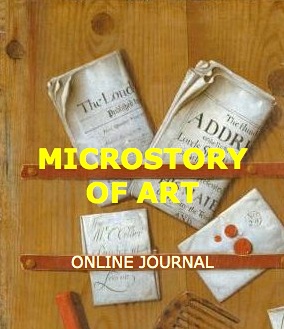
***
ARCHIVE AND FURTHER PROJECTS
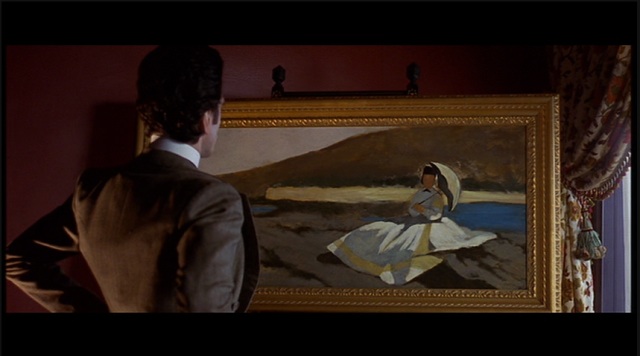
1) PRINT


***
2) E-PRODUCTIONS
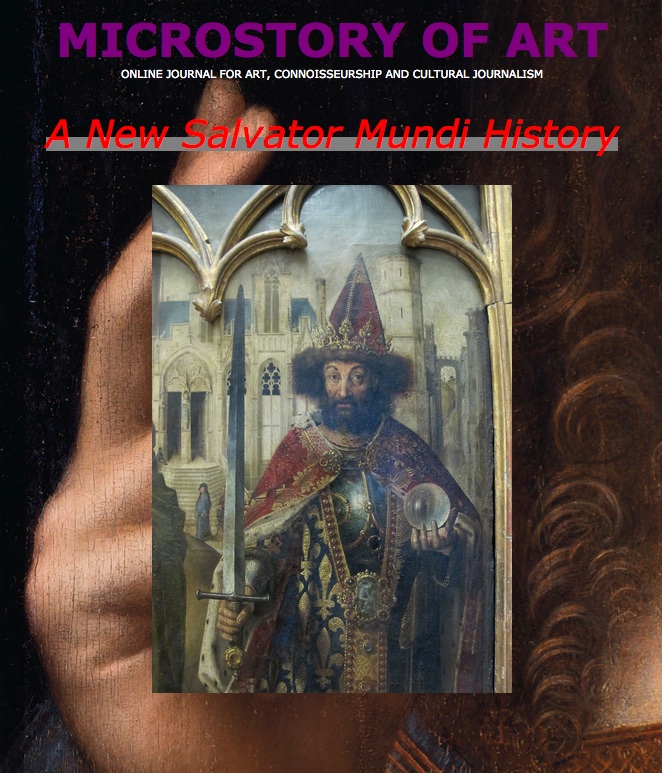
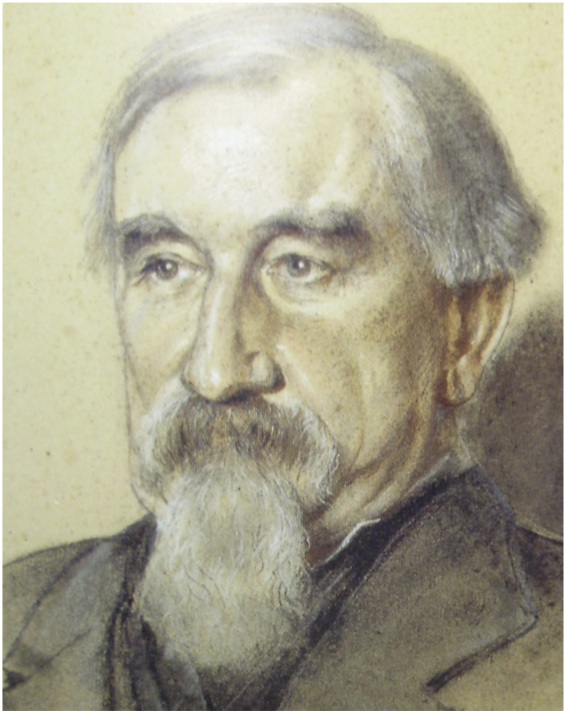
........................................................
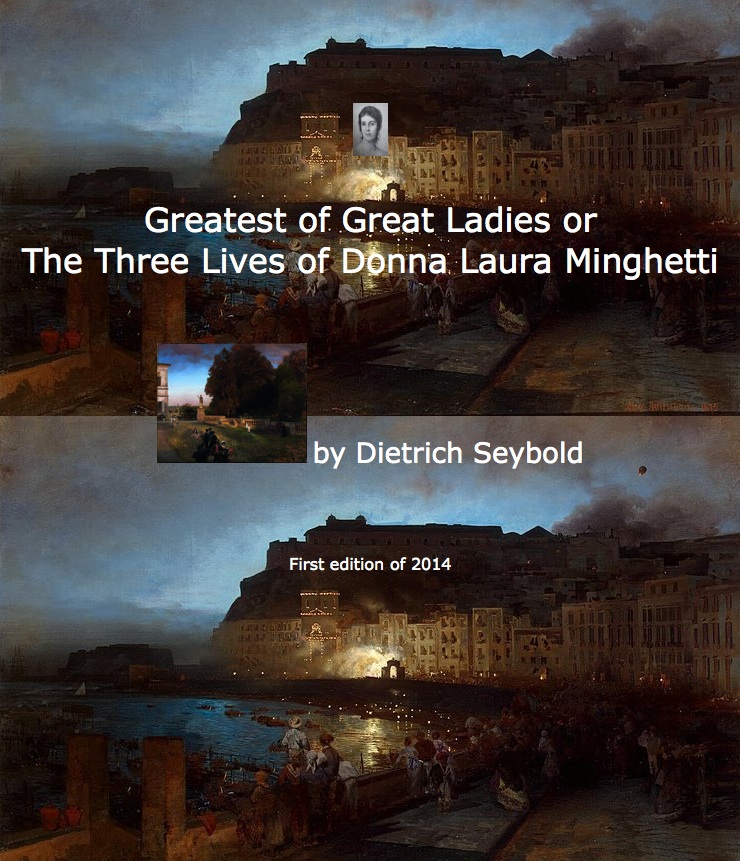
........................................................

........................................................
FORTHCOMING:
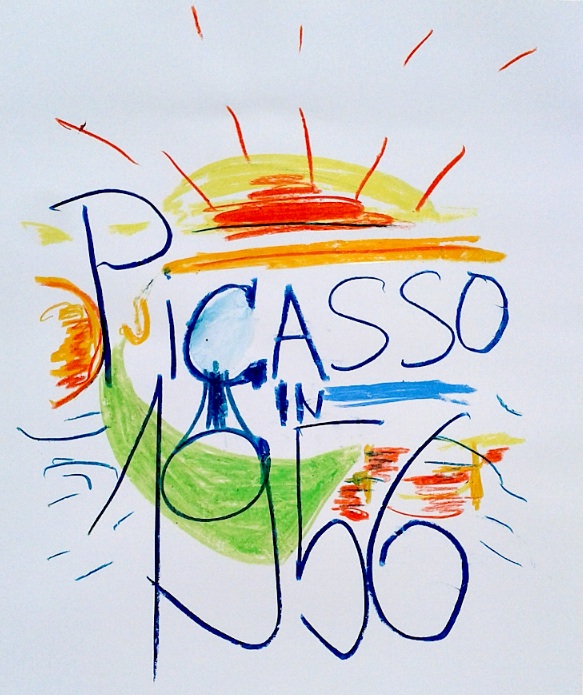
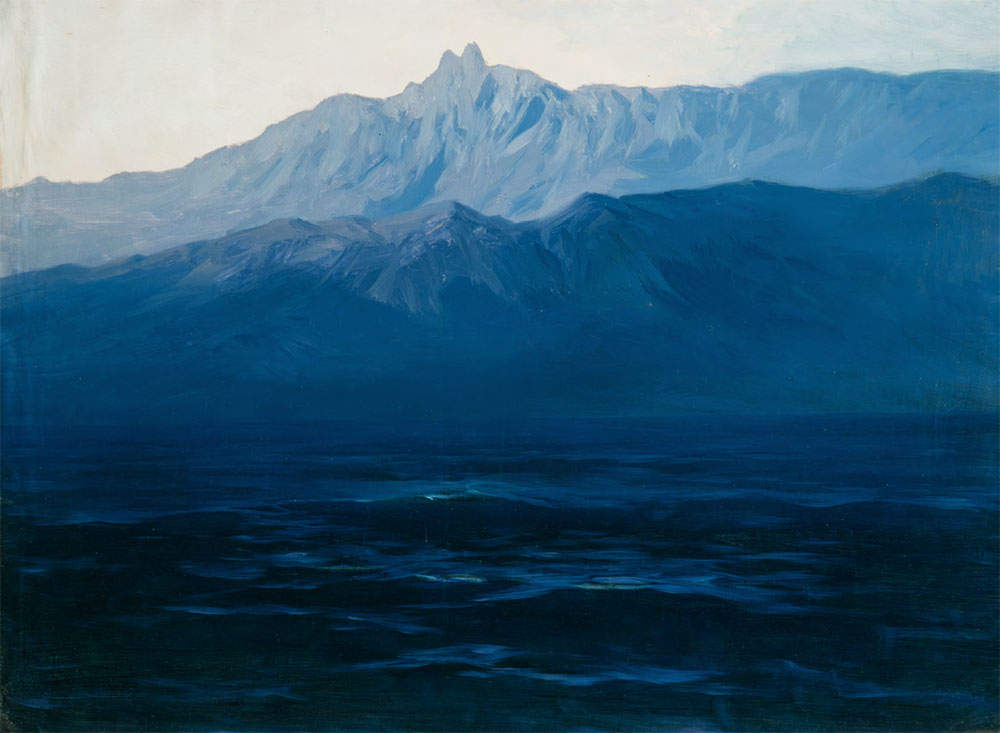
***
3) VARIA

........................................................

........................................................
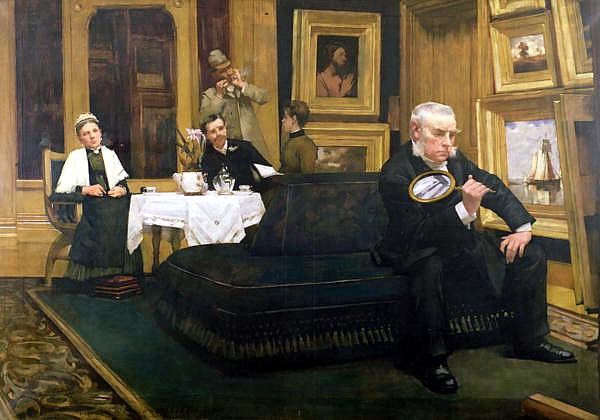
........................................................

........................................................
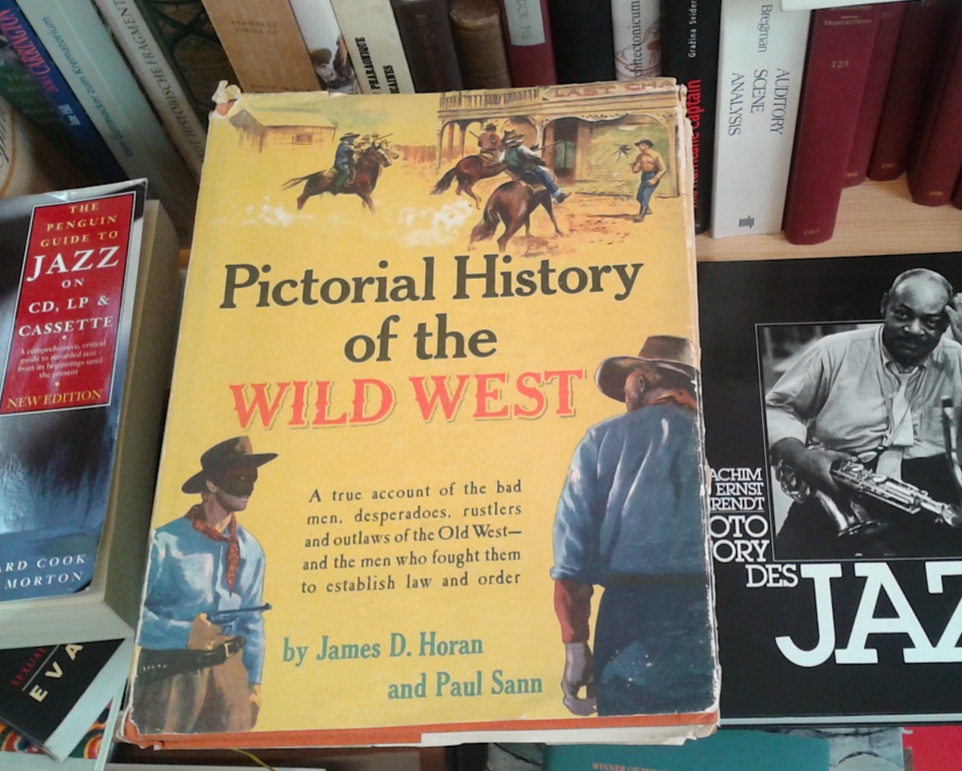
........................................................
***
THE GIOVANNI MORELLI MONOGRAPH

- The Giovanni Morelli Monograph
........................................................
MICROSTORY OF ART
ONLINE JOURNAL FOR ART, CONNOISSEURSHIP AND CULTURAL JOURNALISM
HOME
Assorted Translations of German Sources
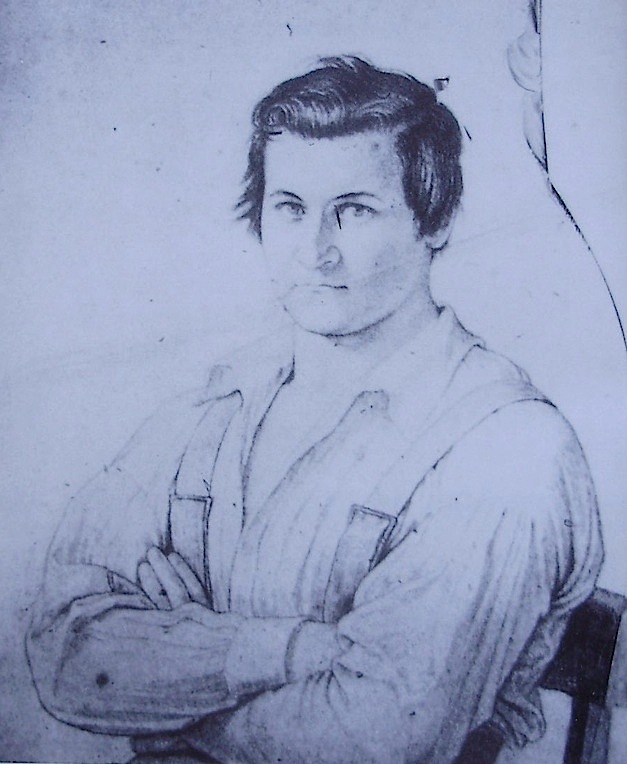
(Source: Anderson/Morelli 1991a, p. 70)


Clemens Brentano and Joseph Görres
(pictures: Wikipedia; koblenz.de)

Friedrich Rückert (before 1841)
GIOVANNI MORELLI AND THE GERMAN LITERARY SCENE OF THE PRE-MARCH ERA
›With [Clemens] Brentano I am meeting less often than in times past, the same with [Joseph] Görres, whose last work, Die Mystik, is a very odd emergence.‹
(»Mit [Clemens] Brentano komme ich weniger oft als früher zusammen, ebenso mit [Joseph] Görres, dessen neuestes Werk, Die Mystik, eine ganz merkwürdige Erscheinung ist.«
(GM to Federico Frizzoni, 14 July 1837 (Frizzoni 1893, p. XVIIIf.)))
›That the divine Hanswurst [Clemens Brentano] had to leave this world [Brentano died in 1842], this probably you do know – if there he will be allowed to continue to play that part, having set many an example here, this is just the question, as much as yet he was in the habit to declare that, in heaven, nothing less than dull and stiff things occur.‹
(»Dass der himmlische Hanswurst [Clemens Brentano] diese Welt [hat] verlassen müssen, dies werden Sie wohl erfahren haben – ob es ihm dort gestattet sein wird, diese Rolle fortzusetzen, zu welcher er hier so manche Proben machte, ist halt die Frage, wenn er auch noch so sehr beteuerte, dass es im Himmel nichts weniger denn langweilig u steif zugehe.«
(Bonaventura Genelli to GM, 23 September 1842))
›Not only as an university town Erlangen has come to fame, but also due to its gloves, pipe bowls, and stocking factories, and in recent times due to its splendid factory of poems it is highly appreciated in the whole of Germany – what yet does preserve the special importance of Erlangen, for Bavarians, Prussians and Saxonians, is the Protestant, fanatic sect of mystics. […]‹
(»Nicht nur als Universitätsstadt ist Erlangen berühmt, sondern auch durch seine Handschuhe, Pfeifenspitzen und Strumpffabriken, und in neuester Zeit durch seine vortreffliche Gedichtfabrik ist es in ganz Deutschland sehr hoch geschätzt – was aber Erlangen für Bayern, Preussen und Sachsen in besonderer Wichtigkeit erhält, ist die protestantische, fanatische Sekte der Mystiker. […]«
(GM to Federico Frizzoni, 15 October 1837 (Frizzoni 1893, p. XV)))
›Rückert is 49 years old. His outward appearance is highly meaningful; for some perhaps repellent, but for those being able to read better, attractive. He is very tall (in any respect the most tall Erlangian; by a head taller than me). Proportioned as well; since judging by his back one would not assume him to be a scholar. His ever earnest face, somewhat marked with smallpox, does belong among the most impressive I have seen. He has a quite low, lightly domed, beetling forehead, low-lying, black, sparkling eyes, whose fire, particularly if he does smile, does fairly glow, a somewhat pinched, broad mouth – a small, shapeless nose (the only meaningless part in his face) and beetling cheekbones. The face is not fat, but more shrunken. The somewhat long, greyish hair is parted and stroked behind the ears. His movements are fast and strong, which I had the opportunity to see when the other day he did pay me a visit and we were talking about the Indian fakirs, and when, in the heat of recounting their almost unbelievable tricks, all of a sudden he got up from his chair, and by actions and gestures of all kinds sought to make his description more lively and more graphic. One cannot fail to recognize the poet of the Geharnischte Sonette in him. His favourite conversation is about the various languages, their spirit and their forms, and never it is that I leave him without large benefit. To enjoy as much as possible of him, I have approached the task of studying the German grammar by the Grimm’ and the ancient and medieval poets that I had, for quite some time, somewhat neglected, because I felt the same like with the early-German, much praised visual arts – having been elevated only very little by their nebulous and cripple-like, starving figures, lacking all fleshlyness, and even the Nibelungen, as highly as I could enjoy them, come to be more repugnant to me, as soon as I am juxtaposing them in opposition to Homer. […]
Rückert is to be counted here among the few scholars, having remained entirely independant and free, as regards the various factions […] of the mystics; he does live all by himself and quietly, and associating just with one friend (professor Kopp, a man of immense learning). From 4 o’clock in the morning until 10 in the evening he keeps on working, almost without interruption, so that his productivity does appear to be less marvelous to me, as his immense knowledge of languages (Greek, Latin, Italian, Spanish, French, English, Norvegian, Danish, Arabic, Hebrew, Persian, Sanskrit, and what would I know more). He’s not into paying visits; and all the more I do appreciate his visits, by which he has honoured me yet a couple of times. Every week I am spending some hours with him, and, having seen that he does quite like me, I am going to add some more to that. The other day he read aloud several poems to me that a certain Kotzenberg from Bremen had sent him to give his opinion.‹
(»Rückert ist 49 Jahre alt. Sein Äusseres ist höchst bedeutend; für manchen vielleicht zurückschreckend, für solche aber, die besser lesen können, anziehend. Er ist sehr gross (in jeder Beziehung der grösste Erlanger; um einen Kopf höher als ich). Dabei aber proportioniert; denn seinem Rücken nach sollte man ihn für keinen Gelehrten ansehen. Sein stets ernstes Gesicht, das durch die Pocken etwas gelitten, gehört unter die imposantesten, die ich gesehen. Er hat eine ziemlich niedere, leichtgewölbte, vorstehende Stirn, tiefliegende, schwarze, funkelnde Augen, deren Feuer, besonders wenn er lächelt, recht glüht, einen etwas zusammengekniffenen, breiten Mund – eine kleine, formlose Nase (der einzige unbedeutende Teil in seinem Gesicht) und stark vorstehende Backenknochen. Das Gesicht ist nicht fett, sondern mehr eingefallen. Das etwas lange, grauliche Haar ist gescheitelt und hinter die Ohren gestrichen. Seine Bewegungen sind schnell und kräftig, was ich besonders neulich, als er mich besuchte und das Gespräch auf die indischen Gaukler kam, zu sehen Gelegenheit hatte, wo er sich im Eifer der Erzählung von ihren fast unglaublichen Kunststücken plötzlich vom Stuhle erhob und durch Aktionen und Gestikulationen aller Art seine Beschreibung lebendiger und anschaulicher zu machen strebte. Der Dichter der Geharnischten Sonette ist in ihm nicht zu verkennen. Sein liebstes Gespräch ist über die verschiedenen Sprachen, ihren Geist und ihre Formen, und nie verlasse ich ihn ohne einen grossen Nutzen. Um recht viel von ihm zu geniessen, habe ich mich nun an die Grimm’sche deutsche Grammatik gemacht und an die alten und mittelalterlichen Dichter, die ich schon seit lange etwas vernachlässigt hatte, weil es mir bei ihnen wie bei der altdeutschen, gepriesenen bildenden Kunst ging – ich erbaute mich an ihren nebelhaften und krüppelhaften, verhungerten Gestalten, denen alles Sinnliche abgeht, sehr wenig, und selbst die Nibelungen, so hohen Genuss sie mir verschafft haben, werden mir zuwider, sobald ich sie an den Homer halte. […]
Rückert gehört hier unter die wenigen Gelehrten, die ganz unabhängig und frei von den mystischen Faktionen […] geblieben sind; er lebt für sich eingezogen und still und hat bloss einen Freund (Professor Kopp, ein Mann von immenser Gelehrsamkeit), mit dem er umgeht. Von morgens 4 bis abends 10 Uhr arbeitet er fast ununterbrochen fort, und so erscheint seine Produktivität weniger wunderbar, wie auch seine enorme Sprachenkenntniss (Griechisch, Latein, Italienisch, Spanisch, Französisch, Englisch, Norwegisch, Dänisch, Arabisch, Hebräisch, Persisch, Sanskrit, und was weiss ich noch alles). Besuch machen ist nicht seine Sache; um so höher schätze ich seine Besuche, mit denen er mich schon einigemal beehrt hat. – Jede Woche bringe ich einige Stunden bei ihm zu und werde, seit ich gesehen, dass er mich wohl leiden mag, einige mehr dazu addieren. Neulich las er mir mehrere Gedichte eines gewissen Kotzenberg aus Bremen, die dieser ihm zur Beurtheilung überschickt hatte, vor. […]«
(GM to Federico Frizzoni, 15 October 1837 (one of the most hilarious letters ever written: see Frizzoni 1893, pp. XIXff., quoted above from p. XXIIf.; orthography slightly modernized)))
›If I am now juxtaposing the individuality of Alfieri and that of [Ludwig] Tieck, for example, how pathetic the latter does appear to me – as a human being he has not a scrap of a poetic soul, at least on me his courtly, calculating, overly refined, in short, his insincere way has left the most unpleasant impression and I would not ever pay him a visit again, if, for the time being, he had not proven himself most favourably and kindly to me, and if, secondly, I wasn’t able to learn much about Spanish literature from him. Moreover I cannot admire enough his reading aloud, particularly of plays by Shakespeare; the more in-depth understanding of Lear, for example, I entirely do owe to his reading. That he does read everything well, not only, as one does usually state, Shakespeare, of this the Alceste by Euripides, that I had suggested, as well as several comedies by Heinrich von Kleist have convinced me. Also Goldoni he read masterfully, and one cannot deny him a tremendously fine sense. His nature is that female that it is capable to huddle against everything and to absorb everything – I do mean his poetic nature; – because himself, he has nothing female in his character, if one perhaps does exlude the crones […]‹
(»Wenn ich nun die Individualität Alfieris gegen die Tiecks z.b. halte, wie erbärmlich erscheint mir nicht letzterer – als Mensch hat er nicht eine Spur einer dichterischen Seele, auf mich wenigstens hat seine höfische, berechnete, superfeine, – kurz seine falsche Art u Weise den unangenehmsten Eindruck gemacht u ich würde ihn nie wieder besuchen, wenn er fürs erste sich mir nicht so überaus gefällig u artig erwiesen hätte, u wenn ich zweitens nicht über spanische Literatur vieles von ihm lernen könnte. Auch kann ich seine Vorlesungen, zumal Shakespeare’scher Stücke, nicht genug bewundern; das nähere Verständnis Lears verdank’ ich z.b. ganz u gar seiner Vorlesung. Dass er alles u nicht nur den Shakespeare, wie es gewöhnlich heisst, gut vorliest, davon haben mich d. Alceste des Euripides, die ich vorgeschlagen hatte, u dann einige Lustspiele Heinrich v. Kleists überzeugt. Auch den Goldoni las er meisterhaft vor, u ein ungemein feines Gefühl lässt sich ihm keineswegs absprechen. Seine Natur ist so weiblich, dass sie sich an alles schmiegen u alles aufnehmen kann – ich meine, seine poetische Natur; – denn selbst hat er nichts weibliches in seinem Charakter, wenn man d. alten Weiber vielleicht ausnimmt […].«
(GM to Bonaventura Genelli, 14 June 1838; for Morelli referring, in 1864, to having read in his youth poems by Bürger, Hölderlin, Tieck and other poets of the Romantic school see Panzeri/Bravi (eds.) 1987, p. 128))
››Well, this is nice, Herr Morell, that you have also a sense for painting‹, Bettina [von Arnim] said to me.
›You are an art connoisseur as well?‹, somewhat meddlesomely asked the baron [Mayer Carl von Rothschild]. – But since I did not reply to him at all, the young hero glanced, smilingly, at the ladies, whilst he turned the brilliant ring that he had on his little finger.‹
(»›Ei, das ist schön, Herr Morell, dass Sie auch Sinn für Malerei haben‹, sagte mir Bettina [von Arnim].
›Sie sind auch ein Kunstkenner?‹, fragte etwas vorwitzig der Herr Baron [Mayer Carl von Rothschild]. – Da ich ihm aber gar keine Antwort gab, so warf der junge Held einen lächelnden Blick auf die Damen und drehte dabei seinen Brillantring am kleinen Finger.«
(GM to Bonaventura Genelli, 12 November 1838))

(Picture: landschaftsfotos.eu)

(Picture: atlantikblick.com)
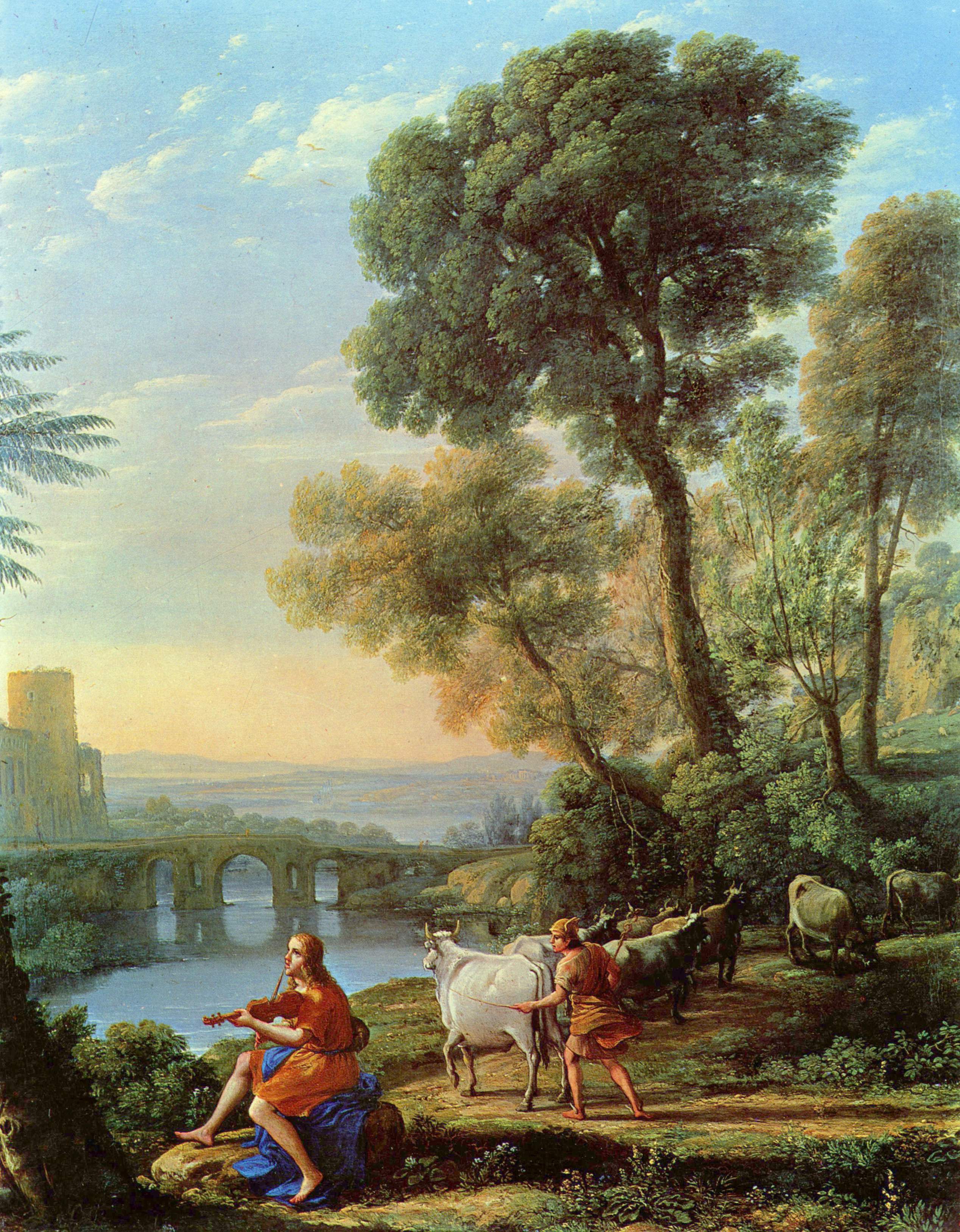

(Picture: thelondonplan.com)

(Picture: bellagio.co.nz)
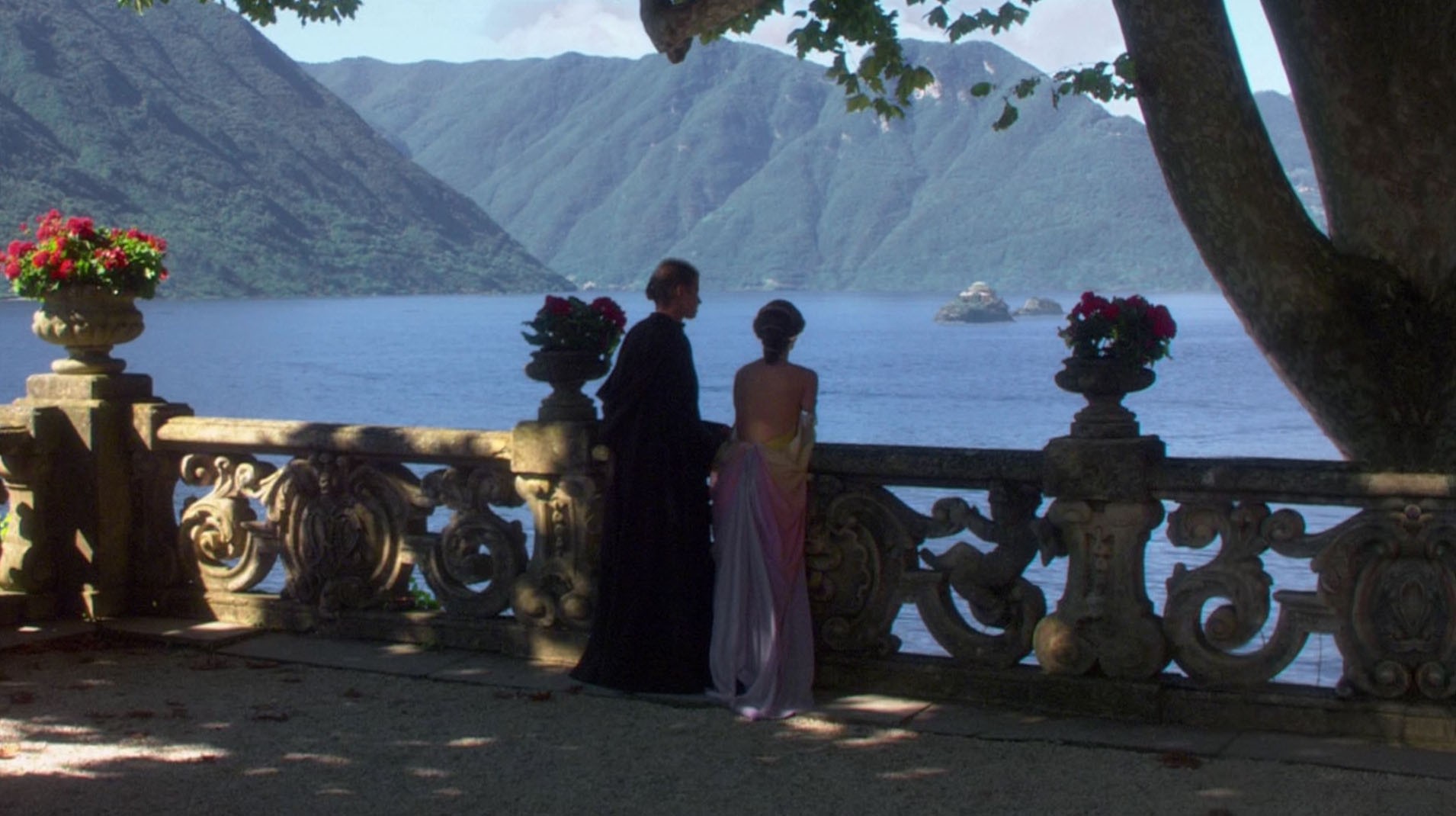
(Picture: starwars.wikia.com)

(Picture: movieplacepicture.com)
GIOVANNI MORELLI EXPERIENCING NATURE
›As soon as one or the other had found a spot where the phenomenon [polished surfaces on granite] showed in its full beauty, he summoned, similar to a clucking hen, his environment; everybody came running and palpated the shining surface areas. One counted the strips, followed them by one’s finger, contemplated them with the magnifying glass and enjoyed the new confirmation that the theory of glaciers had found by them being there.‹
(»Sobald Einer oder der Andere eine Stelle gefunden hatte, wo sich das Phänomen [polished surfaces on granite] in seiner ganzen Schönheit zeigte, rief er, gleich einer Gluckhenne, seine Umgebung herbei; Jedermann lief herzu und befühlte die glänzenden Flächen. Man zählte die Streifen, verfolgte sie mit dem Finger, betrachtete sie mit der Lupe und freute sich der neuen Bestätigung, welche die Gletschertheorie durch ihre Anwesenheit erhalten hatte.«
(Source: Vogt (ed.) 1847, p. 95))
›[…]. – The next day we [Giovanni Morelli, Alexander von Nordmann and Henri Milne-Edwards] arrived by the ocean!
The sight of the sea caused so much joy in me, that I am not able to recall a similar one. A long time I was sitting alone by the shore, contemplating the never ending water surface with its cheerfully foaming blue waves, without knowing what exactly I was feeling. First I felt wistful, but soon cheerful, when Don Quixote occured to me, how he did look, in Barcelona, at the sea for the first time, with Sancho on that bright summer morning, and with master and servant being surprised [Don Quixote, vol. II, chapter 61]. All the Ruidera lakes taken together, said Don Quixote, are, by the almighty heavens, not as vast as the sea, and this contention I shall defend with my sword against anyone, whoever he might be! And in fact nothing does seem to be more appropriate in order to destroy, by one stroke, all limitations and biases of our notions that we have obtained in [a] narrow circle, than a gaze at the sea. – If one does sit on deck, outside, on the open sea, watching the playing of the mighty waves that are scrambling as young lions do, without knowing their actual strength – awkwardly and yet gracefully –, if all around one does catch sight of nothing but the sky and water, every now and then seeing a white sailing ship, tracking slowly and proudly on the waves, or a screaming seagull, tracking fast over the waves – the sky being clear and serene and the sun above shining and the sun below shining, in such a moment one does feel like an eternal Sunday and with this magnificent sight one does forget all the high and low vermin that, on the mainland, does ›grunt and gasp under the burden of an onerous life‹ – and only the noble does find favour with oneself. Egad, a different life it is that a sailor does lead, if juxtaposed in opposition against that of a grumbling hero of a lecturing desk and company! By Jove, nothing compares to travelling, and if in fact I was alone, with no mother that is dear to me beyond measure, I would travel to the cannibals. I am picturing these creatures much more lovely and pleasant than our encyclopaedia-breed. Admittedly there might not be a great deal to laugh, and this I am overfond of doing, which is why it is such a gain to live in the most splendid of all continents, in the land of Europe, to watch enlightment societies and other street lamp cleaners. Are’t these blokes looking eager to clean? And how is our Christian red-backed shrike doing, the greasy Brentano? Hasn’t he burst out of saintliness?‹
(»[…]. – Den andern Tag waren wir [Giovanni Morelli, Alexander von Nordmann and Henri Milne-Edwards] am Ozean!
Der Anblick des Meeres brachte eine solche Freude in mich, dass ich mich einer ähnlichen nicht erinnern kann. Ich sass lange allein am Ufer u betrachtete diese unendliche Wasserfläche mit ihren heiterschäumenden blauen Wellen, ohne zu wissen, was ich eigentlich fühle. Bald wurde ich wehmütig gestimmt, bald aber heiter, wenn mir Don Quixote einfiel, wie er mit Sancho an jenem hellen Sommermorgen zum erstenmale in Barcelona das Meer anblickt u Herr u Diener in grosse Verwunderung geraten [Don Quixote, vol. II, chapter 61]. Alle Ruidera-Seen zusammen genommen, sagte Don Quixote, sind beim allmächtigen Himmel, nicht so gross wie das Meer u diese Behauptung will ich mit meinem Schwerte gegen [einen] jeden, sei er auch wer er immer wolle, verteidigen! Und in der Tat scheint mir auch nichts geschickter, alle Beschränkthheiten u Einseitigkeiten unserer in [einem] engen Kreise gewonnenen Begriffe mit einem Schlage so zu vernichten, als wie ein Blick aufs Meer. – Wenn man auf offener See draussen auf dem Verdecke sitzt u dem Spiele dieser gewaltigen Wellen zusieht, die gleich jungen Löwen miteinander balgen, ohne ihre eigentliche Kraft zu kennen, – plump u doch graziös – rings um sich nichts als Himmel u Wasser gewahrt, hie u da ein weisses Segelschiff langsam u stolz auf den Wellen oder eine schreiende Möwe schnell über den Wellen ziehn sieht – der Himmel klar u heiter u die Sonne oben u die Sonne unten scheint, da [ists] einem wie ein ewiger Sonntag zumute u man vergisst bei diesem herrlichen Anblicke alles hohen u niedern Geziefers, das da auf dem festen Lande ›unter der Last eines drückenden Lebens grunzt u keucht‹ – u nur das Edle findet in einem Anklang. Bei Gott, welch anderes Leben führt nicht so ein Matrose gegen das eines meckernden Kathederhelden u Konsorten! Beim Jupiter, übers Reisen geht nix u wenn ich allein wäre u keine Mutter hätte, die mir über alles teuer ist, ich reiste wahrlich zu den Kannibalen. Ich denke mir diese Kreaturen viel lieblicher u angenehmer, als unsere Konversationslexikonsbrut ist. Aber freilich gibts dort nicht viel zu lachen u das tu’ ich gar zu gerne u deshalb ist es ein grosser Gewinn im fürtrefflichsten aller Weltteile, im Lande Europa, wohnen zu können u den Aufklärungsgesellschaften u andern Lampenputzern zuzusehen. Sehn diese Kerle nicht putzlustig aus? Was macht denn unser christlicher Neuntöter, der ölige Brentano? Ist er vor Frömmigkeit noch nicht zerplatzt?«
(GM to Bonaventura Genelli, 25 September 1839))
›Every week I do visit the Doria gallery a couple of times, where the most sublime landscapes by Claude and by [Gaspard] Poussin are to be found, and after having immersed myself rather thorougly into this, I am presently heading into free nature, seeking to find in it what I have seen in the paintings, and what these artists have found and had striven to more or less emulate.
Such studies are to my liking in the extreme, they enlarge and purify my mind [animo] and provide it with a more sublime notion of nature and of art.
Blissful is the one to whom everything is animated idea and not mere word and tradition anymore!‹
(»Ich besuche jede Woche ein paarmal die Galerie Doria, wo sich die erhabensten Landschaften von Claude und von [Gaspard] Poussin befinden, und nachdem ich mich recht eingehend darin vertieft habe, begebe ich mich gleich in die freie Natur und suche das darin zu finden, was ich in den Gemälden gesehen und was jene Künstler gefunden und mehr oder weniger nachzuahmen gestrebt haben.
Solche Studien sagen mir im höchsten Grade zu, sie erweitern und läutern meinen Sinn [animo] und verleihen ihm einen erhabenern Begriff der Natur und der Kunst.
Glückselig derjenige, dem alles lebendige Idee und nicht mehr blosses Wort und Ueberlieferung ist!«
(GM to Niccolò Antinori, 20 April 1842 (Frizzoni 1893, p. XXXVIII); from Rome))
›How often am I not speaking of you [Bonaventura Genelli] with my Florentine friend, if both we are sitting in the evening and after dinner at the blazing fireside having a smoke – how often the wish does awake in me to have you here in this paradise-like hermitage! What joy it would be for your mind to see and to feast on these blue waters all around here, these rocks garlanded by high myrtle trees and evergreen oaks, these lovely arcades at the house, through which one does look at the snow-covered Alps! All for you! –
On our walks and on our rides on water we often get in areas utterly reminding of the Ariosto-kind of areas – wild rocks, over which waterfalls are dropping, high laurel trees above, deep caves and grottos, and next to it olives and fig trees and junipers, from which the blackbird, shrieking, comes flying out, and above of all this the pure Southern sky and spring air in the middle of the winter. It is a blissfulness, what evenings aren’t we experiencing here – and how marvelous the full moon nights, from which only the melancholy lonesome song of the boatman does sound, who slowly tracks over the water with heavily loaded ship, indeed making us feel the sublime silence all around us – as we are only utterly becoming aware of the dark, if inbetween a light, a torch does gleam, only to disappear again! For hours I could be standing at my window, looking out into the night, without my mind indeed being enamoured by something specific – actually I am thinking of nothing – it is a pleasant rocking from thought to feelings, and mind and soul resting in some sort of crespuscolo – twilight. Only here we are living all by ourselves and alone and with a very aged aunt of mine – my mother has moved to the urban quarter yet since almost two months and shall return here, though, at the beginning of the coming month. In the morning we usually get up early and work until about eleven o’clock when we have brunch. After that we stroll a little on our sunny hill or do some gymnastic exercises until about one o’clock in the afternoon, when we sit down, read or write until three or four o’clock. Then usually we have us pitch and toss around on the lake until it is time for dinner. No newspapers are allowed on the Balbianello. Thus we are certainly living the most serene life that one can live in these dingy times.‹
(»Wie oft spreche ich nicht von Ihnen [Bonaventura Genelli] mit meinem Florentiner Freund, wenn wir beide abends nach Tische am lodernden Kamin sitzen u. rauchen – wie oft erwacht nicht in mir der Wunsch Sie hier in dieser paradiesischen Einsiedelei zu haben! Welche Freude hätte nicht Ihr Geist, dieses blaue Wasser ringsum, diese mit hohen Myrthenbäumen u immergrünen Eichen bekränzten Felsen, diese lieblichen Säulengänge am Hause, durch die man auf die mit Schnee bedeckten Alpen schaut, zu sehen u. sich daran zu laben! Ganz für Sie! –
Auf unseren Spaziergängen u. Spazierfahrten zu Wasser geraten wir oft in Gegenden, die uns ganz an die ariostischen erinnern – wilde Felsen, über die Wasserfälle stürzen, hohe Lorbeerbäume darüber, tiefe Höhlen u Grotten, u. daneben Oliven u. Feigenbäume u Wachholdergebüsch, aus dem die Amsel gellend herausfliegt, u. über dies alles der reine südliche Himmel u. Frühlingsluft mitten im Winter. Es ist eine Seligkeit, welche Abende erleben wir nicht hier – u. wie herrlich die Vollmondnächte, aus denen nur der eisame melancholische Gesang des Schiffers, der mit schwerbeladenem Schiffe langsam über das Wasser hinzieht, ertönt, u. der die erhabene Stille ringsum erst recht fühlen lässt – gleich wie wir das Dunkel nur dann erst recht wahrnehmen, wenn dazwischen ein Licht, eine Fackel leuchtet u. dann wieder verschwindet! Ich könnte stundenlang an meinem Fenster stehen u. in die Nacht hinaussehen, ohne dass gerade an etwas Bestimmtes mein Geist gefesselt wäre – ich denke eigentlich an nichts – es ist ein angenehmes Schaukeln von Gedanke zu Gefühlen, u. Geist u Seele ruhen in einer Art crepuscolo – Halbdunkel. Wir leben nur hier ganz einsam u allein mit einer sehr alten Tante von mir – Meine Mutter ist schon seit fast zwei Monaten in das Stadtquartier gezogen; u wird jedoch anfangs des kommenden Monats wieder hier eintreffen. Morgens stehn wir gewöhnlich frühe auf u. arbeiten bis gegen elf Uhr, wo wir ein Gabelfrühstück zu uns nehmen. Dann spazieren wir ein wenig auf unserm sonnigen Hügel oder treiben gymnastische Übungen bis gegen ein Uhr, wo wir uns dann wieder niedersetzen u. lesen oder schreiben bis drei oder vier Uhr. Dann schaukeln wir uns bis zur Essenszeit gewöhlich auf dem See umher. Zeitungen werden keine auf dem Balbianello geduldet. So leben wir gewiss das heiterste Leben, das man in diesen trüben Zeiten leben kann.«
(GM to Bonaventura Genelli, 12 February 1851))
›From Chiavenna, within two little hours, one reaches quite conveniently the little village of Promontogno, where I have now settled conveniently in one of these neat Swiss grand hotels, having in mind to stay for several days more. The air is fresh and agitated here, not that cold as in the nearby Engadine, so that one can take a walk also in the early morning and at night without an overcoat. All the green meadows here yet have the aromatic scent of mountains, the chestnut trees are extraordinary in their way, indeed beautiful as I cannot remember to have encountered them anywhere, and right across them the mountain river Mera does wind foamingly, heading, with noisy youthful cheering, towards Lake Como. I have not taken another book with me, except the Georgics by Virgil, moreover several dozens of photographs of [old master] drawings, and amidst this company I am spending, at times sitting, at times walking, my days indeed complacently.‹
(»Von Chiavenna erreicht man in zwei Stündchen ganz bequem das Dörfchen Promontogno, wo ich mich nun in einem jener saubern Schweizer Grand Hotels bequem niedergelassen und noch etliche Tage zu verbleiben im Sinn habe. Die Luft hier ist frisch und sehr bewegt, nicht so kalt wie im nahem Engadin, so dass man auch morgens frühe und nachts ohne Paletot spazieren gehen kann. Die grünen Matten hier haben alle schon den würzigen Bergduft, die Kastanienbäume sind einzig in ihrer Art, ja so schön wie ich mich nicht erinnere, sie anderswo angetroffen zu haben, und mitten durch sie hindurch windet sich schäumend der Bergstrom Mera, mit geräuschvoll jugendlichem Jubel dem Comersee zueilend. Ich habe kein anderes Buch als Begleiter mit mir genommen als die Georgica des Virgil, dazu noch ein paar Dutzend Fotografien von Handzeichnungen hinzugelegt, und in dieser Gesellschaft nun verlebe ich hier, bald sitzend, bald spazierend, ganz still vergnügt meine Tage.«
(GM to Jean Paul Richter, 24 August 1883))

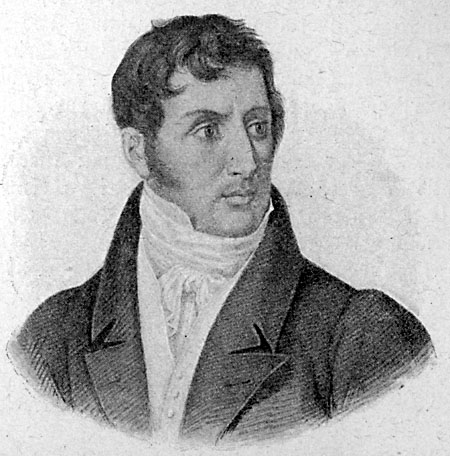
Alessandro Manzoni

Johann Simon Mayr (1763-1845)
VISITING JOHANN WOLFGANG VON GOETHE AND ALESSANDRO MANZONI
[Giovanni Frizzoni speaking] ›We ask Goethe, by sending him a billet, for permission to pay him a courtesy visit, in that we announce ourselves as Italians and speak of his son [August von Goethe], whom we did meet on occasion of his journey [to Italy]. He is going to receive us at 5 o’clock […].
At long last the hour longed for is coming. In front of the door of his reception room the word ›Salve‹ does read in the floor.
We enter the longish, simple, very tasteful room. He gets up from his seat and approaches us halfway. His appearance is that of an advanced, healthy, quiet old man.
He invites us to sit down on the two chairs that already had been arranged for us, and asks us, where we had seen his son – after which he says that he, presently, was on his way from Livorno to Naples, and asks for the matter that led us to visit Germany. He does mention, moreover, the Via Mala, praises the marvelous lakes of Lombardy and the amenities of our neighbouring capital Milan, that his son had liked that much as well. Here he touches upon his relation with [Heinrich] Mylius. The conversation turns to our small town [Bergamo], and to our delight, with much concern he does mention our dear capellmeister Simone Mayr, to whom he sends the most friendly greetings.
On Platen, who due to natural reasons must like Lombardy less than his son, and who did encourage us to visit Him, he says the following: ›He is a gifted man, who did render great services to our literature‹. His friendliness towards us doubles upon hearing that we were in connection with him. The reason why Platen did like Lombardy less than his son, he thinks, had to be ascribed solely to the contingencies of the weather: the land he praises again in many respects and asks for the state of music, which gives him occasion to a graceful joke about the wandering about singers, in that he compares them to the crowd of migrating birds.
Constantly he changes the subject of the conversation and never does allow it to come to a standstill. His face, which indeed resembles to a certain degree the Olympic Jupiter above him, is quiet, yet constantly serene and friendly. Often he does repeat the patronizing, flattering phrase of an elder man against young people, as for example: ›Well, this is quite nice‹ or ›This is quite good‹, to proceed to something new. Finally after a small half an hour he asks for our names, so that he could speak with his son about us. We do understand the hint; present him, while thanking him for his attentiveness and extraordinary kindness, with our card and then soon leave, not without inner movement, the living room of the great man.‹
(»Wir bitten Goethe durch ein Billet um Erlaubnis, ihm unsere Aufwartung zu machen, indem wir uns als Italiener ankündigen und von seinem Sohne [August von Goethe] sprechen, den wir auf seiner Reise kennengelernt. Um fünf Uhr will er uns empfangen. […]
Endlich kommt die ersehnte Stunde. Vor der Türe seines Empfangszimmers steht im Boden geschrieben ›Salve‹.
Wir treten in die lange, einfache, sehr geschmackvolle Stube. Er steht von seinem Sitz auf und geht uns auf halbem Wege entgegen. Sein Aussehen ist das eines vorgerückten, gesunden, ruhigen Greises.
Er lässt uns auf den beiden Stühlen, die schon für uns bereitet standen, niedersitzen, und fragt uns, wo wir seinen Sohn gesehen haben – sagt dann, er sei gegenwärtig von Livorno nach Neapel abgereist und erkundigt sich nach der Angelegenheit, die uns nach Deutschland geführt habe. Er erwähnt ferner die Via Mala, lobt die herrlichen Seen der Lombardei und die Annehmlichkeiten unserer benachbarten Hauptstadt Mailand, die auch seinem Sohn so gefallen habe. Hier berührt er sein Verhältnis mit [Heinrich] Mylius. Das Gespräch fällt sodann auf unsere kleine Stadt [Bergamo], und zu unserer grossen Freude erwähnt er mit der lebhaftesten Teilnahme unseres lieben Kapellmeisters Simone Mayr, den er auf das Freundlichste grüssen lässt.
Über Platen, dem die Lombardei aus natürlichen Umständen weniger gefallen muss als seinem Sohn, und der uns selber Mut gemacht, Ihn zu besuchen, spricht er sich mit den Worten aus: ›Er ist ein talentvoller Mann, der grosse Verdienste um unsere Literatur hat‹. Doppelt freundlich wird er gegen uns, als er gehört, dass wir mit ihm in Konnektion stehen. Dass es Platen in der Lombardei weniger gefallen habe als seinem Sohne, meint er allein den Zufälligkeiten des Wetters zuzuschreiben: das Land lobt er abermals in vielen Hinsichten und erkundigt sich nach dem Zustand der Musik, was ihm Anlass gibt zu einem anmutigen Scherze über die herumziehenden Sänger, indem er sie dem leichten Völkchen der Zugvögel vergleicht.
Immer wechselt er den Gegenstand des Gesprächs und lässt es nie zu, dass es ins Stocken gerate. Sein Gesicht, das wirklich mit dem olympischen Jupiter über ihm eine gewisse Ähnlichkeit hat, ist ruhig, doch beständig heiter und freundlich. Oft wiederholt er die herablassende, schmeichelnde Phrase eines ältern Mannes gegen junge Leute, wie: ›Nun, das ist recht schön‹ oder: ›Das ist recht gut‹, geht sodann gleich zu etwas Neuem über. Endlich nach einer kleinen halben Stunde bittet er um unsere Namen, um noch mit seinem Sohn von uns sprechen zu können. Wir verstehen den Wink; überreichen ihm dankend für seine Aufmerksamkeit und ausserordentliche Güte eine Karte und verlassen alsbald, nicht ohne innere Bewegung, die Stube des grossen Mannes.«
(Source: Rosenfeld (ed.) 1965, pp. 51-53; from a diary kept by Giovanni Frizzoni))
›It was a feast day for Morelli, when he met Manzoni for the first time. The poet was dedicated to studies of language and uttered the opinion: every Italian wanting to write well was obliged, as much as it was difficult, to draw on the Tuscan idiom. The Accademia della Crusca in Florence was the true keeper of the Italian vocabulary. – Morelli recounts: ›Smilingly the poet received me and told me to take a seat next to him. His wife, a black-haired lively lady, his two daughters and his cadet were sitting round the table… It seemed to me that he was more of a poet than of a thinker. At times his conservative mind actuated him to paradoxical sentences. Only for a moment I managed to get his mind off his favourite subject: language. And there he touched upon the subject of foreign literature, named Goethe as the hero of modern poetry, criticized the scant historical faithfulness of Schiller, namely of the Don Carlos, and said of modern French literature that he wasn’t thinking that it could display a work that would last for more than a century. All these topics he developed with much sublety. Thus we chatted until midnight. For the next day he invited me to his study. I was hoping that he would speak of matters that interested me more than the Crusca. In vain. Scarcely we had taken our seats, when again he took up the thread of philosophical conversation. Then entered a young lady that he introduced to me as his ›Sibyl‹. Due to her manner of speaking I immediately recognized the Tuscan woman. It was the Tuscan woman with whom he perused his writings.‹
(»Für Morelli war es ein Festtag, als er zum erstenmal vor Manzoni trat. Der Dichter war tief in Sprachstudien und äusserte: Ein jeder Italiener, der gut schreiben wolle, sei verpflichtet, sich, so schwer es ihm auch falle, des toskanischen Idioms zu bedienen. Die Akademie der Crusca in Florenz sei die wahre Hüterin des italienischen Sprachschatzes. – Morelli erzählt: ›Der Dichter empfing mich lächelnd und hiess mich Platz neben sich nehmen. Um den Tisch sassen seine Frau, eine schwarze lebhafte Dame, seine zwei Töchter und sein jüngster Sohn… Es schien mir, als ob er mehr Dichter als Denker wäre. Sein konservativer Geist trieb ihn manchmal zu paradoxen Aussprüchen. Nur für einen Augenblick gelang es mir, ihn seinem Lieblingsthema, der Sprache, abwendig zu machen. Da berührte er die ausländische Literatur, nannte Goethe den Heros der modernen Poesie, kritisierte die geringe historische Treue Schillers, namentlich des Don Carlos, und sagte von der modernen französischen Literatur, er glaube nicht, dass sie ein Werk aufzuweisen habe, das ein Jahrhundert überleben werde. Alle diese Ideen entwickelte er mit viel Feinheit. So plauderten wir bis Mitternacht. Für den nächsten Tag lud er mich in sein Studierzimmer. Ich hoffte, er werde von Dingen sprechen, die mich mehr interessierten als die Crusca. Vergeblich. Kaum hatten wir uns gesetzt, als er den Faden der philosophischen Konversation wieder aufnahm. Dann trat eine junge Dame ein, die er mir lächelnd als seine ›Sibylle‹ vorstellte. An ihrer Sprechweise erkannte ich sofort die Toskanerin. Es war die Toskanerin, mit der er seine Schriften durchging.‹«
(Source: Münz 1898, p. 94; drawing freely from Carraresi (ed.) 1885, vol. 2, pp. 143-145))
›If stepping into the house of Manzoni we presently become aware adoors, due to the gatekeeper, in the courtyard due to the coachmen cleaning the state coaches, and due to one or the other abbé stepping out of the kitchen, satiated, that we are in the house of a Signore. The namely atmosphere waves in the study of the man of the house. We find no luxury nor pride; assorted works in the best editions, solidly bound in leather, we find on the walls all round; everything is comfortably and cosily arranged, inviting to quiet contemplation. [Giovanni Battista] Niccolini, by contrast, does live in a former cloister presently having passed into the possession of the academy of the fine arts, which institution has employed him as a professor. The poet spends most of his time in a small, narrow, unfriendly room next to the library hall. Of luxury there can be no question here at all, but not even of comfortableness. Since scarcely there are a couple of chairs here, to be offered to the few friends which are allowed, now and then, to pay him a visit and to disturb; as he thinks of time being the most precious good. One’s eye does meet above all some voluminous, respectable and much-thumbed folios on the table. This is the Crusca. The great poet, who maybe as no one else, or as only very few, does know and master the Italian language, still and not seldom consults this dictionary, something I would like to ascribe to his scrupulous conscientiousness. Round these colossusses lay newer historical works, French translations of German biographies of Popes, English scientific books, and amid this, not rarely, there is an emptied soup plate, abandoned by the servant.‹
(»In Manzonis Haus tretend merken wir gleich unter der Tür am Pförtner, im Hof an den Kutschern, welche die Karossen putzen, und an diesem oder jenem Abate, der gesättigt aus der Küche kommend uns begegnet, dass wir im Haus eines Signore sind. Die nämliche Atmosphäre weht im Studierzimmer des Hausherrn. Da ist kein Luxus und keine Hoffart; an den Wänden ringsherum solid eingebundene ausgewählte Werke in den besten Ausgaben; alles ist bequem und heimlich [heimelig] geordnet, und lädt zum behaglichen Nachdenken ein. [Giovanni Battista] Niccolini dagegen wohnt in einem ehemaligen Kloster, das gegenwärtig der Akademie der schönen Künste heimgefallen ist, an welchem Institut er eine Anstellung als Professor hat. In einem kleinen, schmalen, unfreundlichen Zimmer neben dem Bibliotheksaal bringt der Dichter seine meiste Zeit zu. Von Luxus ist nun hier gar keine Rede, aber nicht einmal von Bequemlichkeit. Denn es sind kaum ein paar Stühle da, um sie den wenigen Freunden anzubieten, denen es erlaubt ist, ihn hie und da zu besuchen und zu stören; denn er hält die Zeit für das köstlichste Gut. Auf dem grossen Tisch darin begegnet das Auge vor allem einigen umfangreichen, respektablen und sehr betasteten Folianten. Das ist die Crusca. Der grosse Dichter, der vielleicht wie kein anderer, oder wie nur sehr wenige, die italienische Sprache kennt und beherrscht, zieht noch immer und nicht selten dieses Wörterbuch zu Rat, was ich seiner skrupulösen Gewissenhaftigkeit zuschreiben will. Rings um diese Kolosse liegen nun neuere geschichtliche Werke, französische Übersetzungen deutscher Biografien von Päpsten, englische wissenschaftliche Bücher, und nicht selten steht mitten darunter ein geleerter Suppenteller, den der Diener hat stehen lassen.«
(Source: Engelhardt/Morelli 1845a, p. 2018f.; certainly this passage owes much or all to Morelli alone; see for the detail of the Abate also Carraresi (ed.) 1885, vol. 2, p. 144))
››Manzoni is a man of middle height, grey curly hairs that are parted on the side, beautiful even forehead, fine nose and very fine clear-cut mouth. His eye is grey, and dull and little telling in common conversation, but it is becoming very lively, if he is turning to become zealous, and very smart and sharp, if the conversation touches upon this or that string.‹‹
(»›Manzoni ist ein Mann von mittlerer Grösse, grauen lockigen, auf der Seite gescheitelten Haaren, schöner gerader Stirn, feiner Nase und sehr feinem scharfgeschnittenem Mund. Sein Auge ist grau, und im gewöhnlichen Gespräch matt und wenig sagend, wenn er aber etwas in Eifer gerät, wird es sehr lebendig, und sehr klug und scharf, wenn das Gespräch diese oder jene Saite berührt.‹«
(Source: Engelhardt/Morelli 1845a, p. 2025, note; this passage also certainly by Morelli alone))
›Manzoni, in spite of his being the romantic innovator, is indeed, as to his character, timid and conservative; the Florentine [Niccolini] on the other hand, in spite of his having fought against the stream of modern Nordic views in literature, dismissing them as heresies, is bold by nature, passionate and enterprising. The Milanese [Manzoni] has as an inherited trait an astute critical mind, an unparalleled power of observation and, almost always associated with that gift, the subtle and noble irony and satire that, always uncommon, is hardly to be found anymore in our unruly and fermenting day. Niccolini, though, has a freer soul, more poetic momentum and enthusiasm; he seizes more the whole, the mass, since he is lacking a sense of differenciation and observation. If he is being satirical, which rarely does happen, his satire is not of the smilingly ironical kind, not that of Sterne or of Cervantes, as it is the case with Manzoni, nor the waggishly indulgent kind, like that of Ariosto, but more the earnest crude kind of the ancients. This lack in his power of observation results, in his hermit-like life of a bachelor, that the passionate and emotional situations in his writings are mostly more thought out than felt, and thus do lack the electrifying sparkle of reality. He does move about more in the outward than in the moral world, and the history of people does interest and concern him more than the history of the human heart. Individuals have only a value, for him, inasmuch as they are fit to have a political idea or a significant state affair represented and visualized. This lack of deeper knowledge and intimacy with the human thinking and feeling, his lyrical exuberance, his magniloquence, his freedom-breathing noble soul, his high patriotic feeling, as much as the almost passionate need to have anywhere, if only the occasion does show, to put philosophical and historical considerations and sentences into the mouth of his characters, and finally his aimable an admirable character as a private man, does result in his closely resembling Schiller.‹
(»Manzoni, obwohl der romantische Neuerer, ist seinem Charakter nach durchaus schüchtern und konservativ; der Florentiner [Niccolini] dagegen, wiewohl er gegen den Strom der modernen nordischen Ansichten in der Literatur ankämpfte und sie als Ketzereien verwarf, ist von Natur kühn, leidenschaftlich und unternehmend. Der Mailänder [Manzoni] hat als Erbteil einen scharfen kritischen Geist, eine unvergleichliche Beobachtungsgabe und jene mit diesem Talent fast immer verbundene feine und edle Ironie und Satire, die, immer selten, in unserer unruhigen und gärenden Zeit fast nicht mehr anzutreffen ist. Niccolini aber hat eine freiere Seele, mehr poetische Schwungkraft und Enthusiasmus; er ergreift eher das Ganze, die Masse, weil es ihm an Sonderungs- und Beobachtungssinn mangelt. Wenn er satirisch ist, was selten geschieht, so ist seine Satire nicht lächelnder ironischer Art, nicht die des Sterne oder des Cervantes, wie bei Manzoni, auch nicht schalkhaft gutmütig, wie die des Ariosto, sondern mehr die ernste derbe Satire der Alten. Dieser Mangel an seinem Beobachtungsvermögen macht bei seinem einsiedlerischen Junggesellenleben, dass in seinen Dichtungen die leidenschaftlichen und gefühlvollen Situationen meistens mehr gedacht als gefühlt sind, und mithin des elektrisierenden Funkens der Realität entbehren. Er bewegt sich mehr in der äussern als in der moralischen Welt, und die Geschichte des Menschen interessiert und berührt ihn mehr als die Geschichte des menschlichen Herzens. Für ihn haben die Individuen nur insofern einen Wert, als sie dazu dienen, eine politische Idee, ein bedeutendes Staatsereignis darzustellen und zu vergegenwärtigen. Dieser Mangel an tieferer Kenntnis und Vertrautheit mit dem menschlichen Denken und Fühlen, seine lyrische Exuberanz, seine Magniloquenz, seine freiheitatmende edle Seele, sein hohes patriotisches Gefühl, so wie das fast leidenschaftliche Bedürfnis, überall, wo sich nur irgendeine Gelegenheit darbietet, philosophische und historische Betrachtungen und Sentenzen seinen Personen in den Mund zu legen, und endlich sein liebenswürdiger und bewundernswerter Charakter als Privatmann gibt ihm eine grosse Ähnlichkeit mit Schiller.«
(Source: Engelhardt/Morelli 1845a, p. 2018))
››The two greatest Italian intellectuals in my day were revolutionaries – Cavour a revolutionary in politics, Manzoni a revolutionary in literature. They were also partial to each other from the bottom of the heart. And remarkable: Having been brought up on diverse ground, the one in Turin, the other in Milan, yet both were influenced by the ideas spread in a distinguished circle of Geneva. Cavour was connected to Geneva due to his mother, a born di Sellon, Manzoni due to his wife, a born Blondel.‹‹
(»›Die beiden grössten Geister Italiens in meiner Zeit waren Revolutionäre – Cavour ein Revolutionär in der Politik, Manzoni ein Revolutionär in der Literatur. Sie waren auch einander vom Herzen zugetan. Und merkwürdig: Auf verschiedenem Boden aufgewachsen, der eine in Turin, der Andere in Mailand, waren sie doch Beide von den in einem erlesenen Kreise Genfs verbreiteten Ideen beeinflusst. Cavour hing durch seine Mutter, eine geborene di Sellon, Manzoni durch seine Gattin, eine geborene Blondel, mit Genf zusammen.‹«
(Source: Münz 1898, p. 93; the author recalling this remark made orally by Morelli in the 1880s))



GIOVANNI MORELLI AND GIOVANNI BATTISTA CAVALCASELLE
›The only way that can help us to get out of this art mess and that, over time, promises to lead us to the science of art, the only way, I do think, is the way of a rigid study of form […]. This method yet does lead us by the way to the welcome goal only after long studies in galleries of pictures, and after one has become acquainted, by and large, with a country’s diverse schools of art, so that the method suggested by me only does help and can help to tell the work of a master from that of his pupils and epigones. And this is the very rock on which the little boat of most art disciples does founder. Old Cavalcaselle, for example, hardly ever does know to divide the master from his pupil and copyist, but he does, as the other fellows in art blunder about in the dark.‹
(»Der einzige Weg, der aus diesem Kunstchaos uns heraushelfen kann, und der mit der Zeit uns zur Kunstwissenschaft zu führen verspricht, der einzige Weg, meine ich, ist eben der des strengen Studiums der Form […]. Diese Methode jedoch führt übrigens zum gewünschten Ziele nur nach langjährigen Studien in Bildergalerien, und nachdem sich einer im grossen und ganzen mit den verschiedenen Kunstschulen eines Landes vertraut gemacht, so dass im Grunde die von mir angeführte Methode nur dazu hilft und helfen kann, das Werk eines Meisters von dem seiner Schüler und Nachahmer zu unterscheiden. Und das ist gerade der Felsen, an dem das Schifflein der meisten Kunstjünger scheitert. Der alte Cavalcaselle z.B. weiss fast nie den Meister vom Schüler und Kopisten zu sondern, er tappt eben wie die anderen Kunstgenossen im Finstern herum.«
(GM to Jean Paul Richter, 20 March 1878 (M/R, p. 34f.)))
›Now I am asking you: hasn’t it been my duty to show those people that have, trustfully, accepted the guidance of the historians of Italian art, that first these gentlemen [Crowe and Cavalcaselle] have a very poor expertise, and that second the same aspire to diguise their lack of real knowledge by the hell of a charlatanry? That Cavalcaselle has very little expertise and taste in art, prove, I do believe, well enough his judgments on Moretto, Giorgione, Lo. da Vinci, the Dresden Titian – on the Pesello in the Uffizi, the Titian in Darmstadt, the Madrid Giorgione etc. – That he is a charlatan as well, shines out clearly in his attributions of the so-called Mantegna in Munich, the Torbido in the Uffizi, the Calderari in the Ambrosiana, moreover, in his assuming, without any reason, of Giofrancesco da Tolmazzo having been the teacher of G. A. da Pordenone, in his wanting to recognize paintbrushes of Rubens or of v. Dyck in the painting by late Titian in Munich, in pretending to have delivered the sketch by Palma Vecchio to the picture by Lotto in the Borghese gallery (dated as of 1508), in his wanting to recognize influences of Fra Bartolomeo in the picture by Titian (in the anteroom of the sacristy of the Salute in Venice) etc. I could go on with naming dozens of examples of that kind. Now I am asking you: isn’t it the holy duty of a critic to warn the public of such arrogant dissimulations? If someone is pretending to recognize the brushwork of Timoteo Viti in the folds of a totally overpainted wall painting as the prophets and sibyls in the ›Pace‹ at Rome are, is there another word to refer to such cheekiness than charlatanry? Do you still think that I have dealt too severely with those gentlemen? Cavalcaselle does cite Mündler, to whom he indeed does owe many a hint, only as far as he is able to harm him – such a fellow does earn no consideration, and if I have done a mistake, it is to not have rocked him more vigorously when I did so.‹
(»Nun frage ich Sie, war es nicht meine Pflicht, denjenigen Leuten, die sich der Führung der Historiographen der ital. Kunst zutrauensvoll überlassen, zu beweisen, dass erstens jene Herrn [Crowe and Cavalcaselle] in der Kunstkenntnis sehr schwach sind, und zweitens dass dieselben ihren Mangel an wahrem Wissen durch eine höllische Charlatanerie zu verdecken trachten? Dass Cavalcaselles Kenntnisse und Geschmack in der Kunst nicht weit her sind, beweisen, glaube ich, zur Genüge seine Urteile über den Moretto, den Giorgione, den Lo. da Vinci, den Tizian in Dresden – über den Pesello in den Uffizien, den Tizian in Darmstadt, den Giorgione in Madrid usw. – Dass er auch ein Charlatan ist, leuchtet klar aus seinen Attributionen des sog. Mantegna in München, aus der des Torbido in den Uffizien, aus der des Calderari in der Ambrosiana, ferner daraus, dass er ohne allen Grund den Giofrancesco da Tolmazzo dem G. A. da Pordenone zum Lehrer gibt, in dem Gemälde aus der Spätzeit des Tiziano in München Pinselstriche von Rubens oder von v. Dyck erkennen will, zum Bilde Lotto’s in der Borghese Galerie, vom Jahre 1508, die Skizze von Palma Vecchio geliefert zu sein [probably: haben] behauptet, im Bilde Tizians (im Vorraum der Sakristei der Salute in Venedig) Einflüsse Fra Bartolomeos sehen möchte, usf. Ich könnte noch dutzende Beispiele der Art anführen. Nun frage ich Sie, ist es nicht die heilige Pflicht eines Kritikers, das Publikum vor solchen arroganten Spiegelfechtereien zu warnen? Wenn einer in einem ganz und gar übermalten Wandgemälde, wie die Propheten und Sibyllen in der ›Pace‹ zu Rom sind, im Gefälte noch die Pinselstriche von Timoteo Viti zu erkennen vorgibt, kann man solche Frechheit mit einem andern Worte bezeichnen, als mit dem der Charlatanerie? Finden Sie noch immer, dass ich zu strenge gegen jene Herrn verfahren bin? Cavalcaselle zitiert Mündler, dem er gar manchen Fingerzeig verdankte, nur da, wo er ihm eins anhaben kann – ein solcher Gesell verdient keine Rücksicht, und habe ich einen Fehler begangen, so ist es, ihn nicht tüchtiger geschüttelt zu haben, als ich dies tat.«
(GM to Jean Paul Richter, 10 December 1880; compare also Anderson 1991a, p. 557, and Gibson-Wood 1988, p. 231))
›As far as it is especially concerned now the so-called portrait of Gattamelata by Giorgione in the gallery of the Uffizi, I am confident and do not doubt that my opinion on that picture over time will be approved by everyone who will be dedicated thoroughly to the Veronese school of painting. The opinion of Cavalcaselle is indeed to be called foolish. I do know his logic very well and I could illustrate it with dozens of examples. In judging on that picture his argument might have been about the following: This portrait is not by Giorgione, yet attributed to him –, Mündler does give it to a Veronese; thus Giorgione on the one hand, and Caroto on the other, a Veronese. Let’s thus fuse both views and attribute it to Torbido, who, according to Vasari, indeed was a pupil of Giorgione, and at the same time is from Verona. But this is yet indeed not serious criticism but charlatanry. How is one supposed, by following this path, to get to an indeed positive science of art in the future?‹
(»Was nun speziell das sog. Porträt des Gattamelata des Giorgione in der Uffiziengalerie betrifft, so bin ich dabei meiner Sache sicher, und zweifle nicht, dass mein Urteil über jenes Bild mit der Zeit von allen wird gebilligt werden, die eingehender dem Studium der veronesischen Malerschule sich widmen werden. Das Urteil des Cavalcaselle ist wahrhaft läppisch zu nennen. Ich kenne seine Logik ganz wohl und könnte dieselbe mit Dutzenden von Beispielen verdeutlichen. Bei Beurteilung jenes Bildes mag seine Argumentation ungefähr folgende gewesen sein: Dies Porträt ist nicht von Giorgione, aber doch ihm zugeschrieben –, Mündler gibt es einem Veroneser; also Giorgione einerseits, andererseits Caroto, ein Veroneser. Vereinen wir beide Ansichten und schreiben wir [es] daher dem Torbido zu, der, nach Vasari, ja ein Schüler des Giorgione war und dabei auch aus Verona ist. Das ist aber doch wahrlich keine ernstliche Kritik sondern Charlatanerei. Wie soll man auf diesem Wege je zu einer positiven Kunstwissenschaft gelangen?«
(GM to Jean Paul Richter, 28 February 1880))
›What you are telling me about the pictures of the Liverpool collection that have been baptized by Waagen and Cavalcaselle has not astonished me at all, since indeed the wisdom of these two gentlemen is only too well-known to me. The more you will approach Cavalcaselle, the more you will have to admit to me, that I have treated the charlatan with kid gloves. After the publishing of his Raphael, by the way, even the Berliners, that had thought to have a buttress in him against bloody Lermolieff, will not be able to confirm him [in office] anymore. With Cavalcaselle all the other blind men will fall with him into the pit: Jordan, Bode, Lippmann, Meyer and Henry Wallis, and who all the other followers might be.‹
(»Was Sie mir über die von Waagen und Cavalcaselle getauften Bilder in der Liverpoolsammlung sagen, hat mich gar nicht in Erstaunen gesetzt, ist mir ja die Weisheit der beiden Herren sattsam bekannt. Je mehr Sie dem Cavalcaselle näher treten werden, desto mehr werden Sie mir zugestehen müssen, dass ich den Charlatan mit Glacéhandschuhen behandelt habe. Nach der Herausgabe seines Raphaels werden übrigens selbst die Berliner, die an ihm eine Stütze gegen den verdammten Lermolieff zu haben glaubten, ihn nicht mehr halten können. Mit Cavalcaselle stürzen aber zugleich die andern Blinden in die Grube: Jordan, Bode, Lippmann, Meyer und Henry Wallis und wie die Anhänger alle heissen.«
(GM to Jean Paul Richter, 26 June 1884))
›And how is it going with your article for the ›Academy‹ [The Academy]? In case you have not yet sold it, it would be good, if you would want to mention in it that the main adversaries of Lermolieff are yet actually only the followers of Cavalcaselle, like Bode, Jordan, Müntz and company.‹
(»Und wie steht es mit Ihrem Artikel für die ›Academy‹ [The Academy]? Haben Sie denselben noch nicht abgesetzt, so wäre es gut, wenn Sie darin bemerken wollten, dass die Hauptgegner Lermolieff’s doch eigentlich nur die Anhänger Cavalcaselle’s sind wie Bode, Jordan, Müntz u. Konsorten.«
(GM to Jean Paul Richter, 4 April 1887))
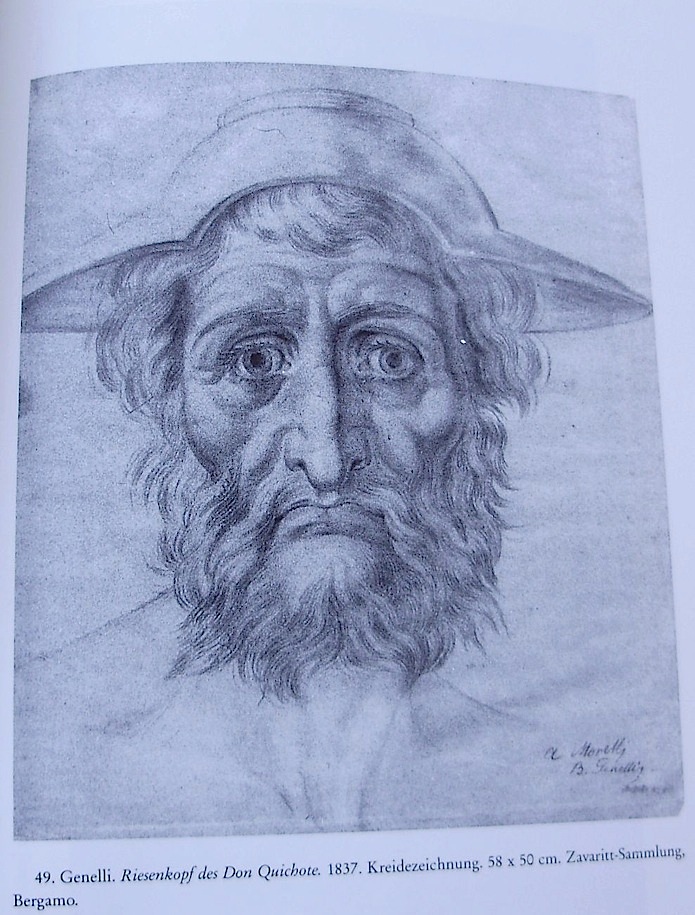
(Source: Anderson/Morelli 1991a, p. 115)
GIOVANNI MORELLI ON GENELLI’S ›COLOSSAL‹ HEAD OF DON QUIXOTE
›1) A colossal head of Don Quixote in black chalk on grey paper, about 16 inch in height. Don Quixote is seen at the very moment he is chewing the exploits of Amadis over, finding that, by far, he has not yet won them. The face being, to a high degree, vigorous and sturdy, longish, with distinct cheekbones, the forehead rather low and uneven, marked with a deep furrow, the skin tightly drawn all over the face, without it appearing to be lean. It is the tautness of Southern-French and Spanish faces, on which a tough life, full of struggles, has left its marks, without smudging the basic form in any way. A long, vigorous nose, with broad crest and wide nostrils provides the face with a highly serious expression. A vigorous beard mantles mouth and chin only insofar that one remains able to perceive the sturdiness of these parts very well, as well as the strained, deeply grievous trait showing in both. Yet what prices this picture are the eyes, big, meaningful, wide open, with a mighty look; above them vigorous brows, not ragged, but with much hair, in the eyes the pupil opened unusually wide. The hairs are rendered simply, being neglected, but without this being striking, the tips protruding somewhat stiffly, beard and head hair are uniting, embracing the whole face. Something mane-like lays in these hairs. A lean, scraggy, wiry neck also becomes visible, and everything is indicative of a tall, extremely vigorous stature.
Yet with this description, there is actually hardly anything said about the uniqueness of this picture; even if I would add that in the execution a giganticness of treatment and a correctness of drawing does show, leaving nothing to be desired. The first impression that the overall picture does give is that of a strange, almost eerie being appearing, that does belong to another world, that does come from another world; a heroic appearance that in quiet development would certainly make the most sublime impression, yet due to the discrepancy that it feels in regard to the environment, due to the storm that thus has come into its inward, has become a ruin, but a mighty, astonishing ruin. This firmness and spirit in the regularly shaped vigorous long nose with mighty wings and broad crest, this tenacity of decision in the closed mouth, to which the vigorous upper lip does add a unique defiance, and in the beetling vigorous chin, this giganticness of the eyes that seem to embrace a whole world, all this are parts of the countenance of a hero; one might, in such a way, imagine one of the paladins of Charlemagne. The forehead alone, brought together in its relative narrowness and being rubbery, is indicative of imbecility; and if one does contemplate the wideness of the eyes and the strength of the other parts, this contradiction between the part that is designating the mind and the reason, and those parts that are designating the strength and the will, shows to be the actual masterly feature of this picture.
One does step in front of this picture, does look into these very eyes with its vigorous lashes; they do not release us, albeit that something eerie does blaze away towards us. It is just the troubled, devastating fire of the soul that here does start at. The eye is unyielding, immersed into an overpowering thought, to carry out a heroic age in itself, to be a hero, surpassing everyone, and broken by the conviction that he was seeking the impossible, that he would not win the height of the ancient heros. But his life, his musing, his thinking lays encapsulated within this single thought; and if this thought has to be given up, the mind does not stick together any longer, it is madness, terribly insinuating itself, that looks out at us from these large, mightily embracing eyes. Reason, contemplation cannot master [p. 182] this contradiction, and all vigorous parts of this visage do only express the pain over having to give up this striving, the feeling of, the unmanagable, the ghoulish, the Nothing. It’s as if himself had seen a ghost, as if the beast, unexpectedly, had stepped in front of its eyes.
Thus is this picture. There it does lean, opposite to me on the sofa, and the more often I am looking at it, the more powerful the impression does get. One could not help to quiver, if this figure all of a sudden would wake up and, with all its suffering and ache, with all its strength and brokenness, gigantically would step in front of oneself.‹
(»1) Ein kolossaler Kopf des Don Quixote mit schwarzer Kreide auf graues Papier, die Höhe etwa 16 Zoll. Don Quixote ist in dem Augenblick genommen, da er die Thaten des Amadis überdenkt, und findet, dass er sie bei weitem noch nicht erreicht habe. Das Gesicht ist in hohem Grade kräftig und derb, länglich, mit starken Backenknochen, die Stirne eher niedrig und uneben, mit einer tiefen Furche bezeichnet, die Haut straff über das Gesicht gezogen, ohne dass dieses dürr erschiene. Es ist die Straffheit südfranzösischer und spanischer Gesichter, auf denen ein hartes, durchgekämpftes Leben seine Spuren gelassen, ohne die zu Grunde liegende Form irgend zu verwischen. Eine lange, starke Nase, mit breiter Kuppe und weiten Nüstern gibt diesem Gesichte einen höchst ernsten Ausdruck. Ein starker Bart verhüllt Mund und Kinn nur so weit, dass man die Kräftigkeit dieser Theile noch ganz wohl wahrnehmen kann, und den gespannten, tiefschmerzlichen Zug, der sich in beiden zeigt. Was dies Bild aber vorzüglich auszeichnet, sind die Augen, gross, bedeutend, weitgeöffnet, mit einem mächtigen Blicke; darüber starke Brauen, nicht struppig, aber stark von Haaren, in den Augen die Pupille ungewöhnlich weit geöffnet. Die Haare sind einfach behandelt, vernachlässigt, doch ohne dass dies auffallend wäre, die Spitzen stehen etwas steif ab, Bart und Haupthaar vereinigen sich und umschliessen das ganze Gesicht. Es ist etwas Mähnenartiges in diesen Haaren. Ein dürrer, abgemagerter, sehniger Hals wird noch sichtbar, und Alles lässt auf eine hohe, äusserst kräftige Gestalt schliessen.
Mit dieser Beschreibung aber ist von der Eigenthümlichkeit dieses Bildes eigentlich noch nichts gesagt; auch wenn ich hinzusetze, dass in der Ausführung sich eine Grossheit der Behandlung und eine Richtigkeit der Zeichnung zeigt, die nichts zu wünschen lässt. Der erste Eindruck, den das Gesamtbild macht, ist der, dass hier ein fremdartiges, fast gespenstisches Wesen erscheine, das in eine andere Welt gehört, das aus einer andern Welt herkommt; eine Heldengestalt, die in ruhiger Entwickelung den erhabensten Eindruck machen müsste, die aber durch das Missverhältnis, in dem sie sich mit der Umgebung fühlt, durch den Sturm, der dadurch in ihr Inneres gekommen ist, zur Trümmer, aber zur gewaltigen, staunenswerthen Trümmer geworden ist. Diese Festigkeit und Thatgewaltigkeit in der regelmässig geformten, starken, langen Nase, mit grossen Flügeln und breiter Kuppe, diese Zähigkeit des Entschlusses in dem geschlossenen Munde, dem noch die starke Unterlippe einen eigenen Trotz gibt, und in dem vortre[e]tenden, starken Kinn, diese Grossheit der Augen, die eine Welt zu fassen scheinen, das alles sind Theile eines Heldenantlitzes; man könnte sich einen der Paladine Karl des Grossen so denken. Die Stirne, in ihrer verhältnissmässigen Enge zusammengebracht und wulstig, lässt allein auf Beschänktheit schliessen, und wenn man die Weite der Augen und die Kraft der übrigen Theile betrachtet, so ist dieser Widerspruch zwischen dem Theile, der den Geist und Verstand, und denen, die Kraft und Willen bezeichnen, der eigentliche Meisterzug dieses Bildes.
Man tritt vor dieses Bild und sieht in diese Augen mit ihren starken Wimpern; sie lassen einen nicht los, obgleich uns etwas Unheimliches aus ihnen entgegenlodert. Es ist eben das unruhige, verheerende Feuer der Seele, das hier seinen Ausgang nimmt. Dies Auge ist starr, in einen übermächtigen Gedanken versenkt, eine Zeit des Heldenthums in sich wahr zu machen, ein Held zu seyn über alle, und gebrochen durch die Ueberzeugung, dass er das Unmögliche versuche, dass er an die Höhe der alten Helden nicht reichen werde. Aber sein Leben, sein Sinnen, sein Denken ist in diesem einzigen Gedanken beschlossen; wenn dieser aufgegeben werden muss, so hält der Geist nicht mehr zusammen, es ist der furchtbar anschleichende Wahnsinn, der aus diesen grossen, mächtig umfassenden Augen uns entgegenschaut. Der Verstand, die Betrachtung können dieses Widerspruchs nicht Meister [p. 182] werden, und alle kräftigen Züge dieses Antlitzes drücken nur den Schmerz aus, dass dies Streben aufgegeben werden muss, das Gefühl, das nichtzubewältigende, schaurige, das Nichts. Es ist als habe er selbst ein Gespenst gesehen, als sey das Ungeheuer ihm unerwartet vor Augen getreten.
So ist dies Bild. Dort lehnt er mir gegenüber auf dem Sopha, und je öfter ich es anschaue, desto stärker wird der Eindruck. Man würde sich des Bebens nicht enthalten können, wenn diese Gestalt nun plötzlich aufwachte und mit ihrem Leid und Weh, mit ihrer Kraft und Gebrochenheit riesig vor einen hinträte.«
(Engelhardt/Morelli 1839, p. 181f.))

Crown Princess Victoria in 1884
GIOVANNI MORELLI AND CROWN PRINCESS VICTORIA
›As to the sense of art of the German Crown Princess I would have heard as yet much diverse opinions, and it is very important to me what, as far as she is concerned, you bring to my attention. Bode does claim that she was obstinate and full of preconceptions. It is too kind of you that you have, while conversing with her, recalled my humble person.‹
(»Über den Kunstsinn der deutschen Kronprinzessin hätte ich bisher sehr verschiedene Urteile gehört, und es ist mir sehr wichtig, was Sie über dieselbe mir mitteilen. Bode behauptet, sie sei obstinat und voller vorgefasster Meinungen. Es ist zu gütig von Ihnen, dass Sie meiner geringen Person im Gespräch mit derselben gedacht haben.«
(Jean Paul Richter to GM, 1 December 1879))
›So I have spent six days full of contents in that respect, as far as I am concerned, amidst Their k.k. Highnesses in Baveno – much was spoken about politics and about art, and I took notice also this time that the Crown Prince is indeed really taking an interest in the art collections of Berlin. Also he gave his opinion on the well-known picture by Rubens (Amphitrite), in that he told me that he had not been in favour that one should buy this picture – nor he nor the Crown Princess, nor her companions were satisfied with the picture. Since the picture itself is unknown to me, I could’t say anything in favour or against its authenticity – yet I took also this occasion to praise, with warm words, Meyer as well as Bode, as regards their expertise as well as their ardour in regard of the collections that have been entrusted to them, adding that no gallery in the world can claim to be lead by such people – something the Crown Prince as well as the Crown Princess gladly addmitted to me. Since the latter never ever dropped a word as to the book of Lermolieff, I did, well understood, beware to bring up such topic. […]. Also this time both, the Crown Prince as well as the Crown Princess have left a very good impression on me – he as a frank and honest man, she due to her intellectual activity. Certainly she is not an ordinary woman. By the way – the conversation led us also to consider the acquisitions made by Lippmann, as to which the Crown Prince remarked that he was a real genius in finding and in requisitioning of good and rare art works, and since, in a certain respect, it seemed to me that he was utterly right, I led the remark pass without saying something on my part. For if the Crown Prince yet had been referring to the acquisition of the Raphael drawings and of the Dürer portrait in particular (which I do remember well), I certainly would have dropped a few words of modest objections.‹
(»Ich habe also 6 für mich in der Beziehung höchst inhaltreiche Tage in der Mitte Ihrer k.k. Hoheiten in Baveno zugebracht – da wurde viel über Politik und über Kunst gesprochen, und ich bemerkte auch diesmal, dass der Kronprinz sich wirklich sehr für die Kunstsammlungen Berlins interessiert. Er sprach sich auch über das bekannte Rubensbild (Amphitrite) aus, indem er mir sagte, dass er nicht dafür war, dass man dies Bild ankaufen sollte – weder er noch die Kronprinzess, noch die Begleiter derselben, waren mit dem Bild zufrieden. Da mir das Bild selbst unbekannt ist, so konnte ich weder für noch gegen die Echtheit der Gemäldes etwas sagen – ich benutzte jedoch auch diese Gelegenheit, um sowohl Meyer als Bode mit warmen Worten zu preisen sowohl in Beziehung ihrer Kenntnisse als ihres Feuereifers für die ihnen anvertrauten Sammlungen und fügte hinzu, dass keine Galerie der Welt solche Leute an ihrer Spitze aufzuweisen hat – was sowohl der Kronprinz als die Kronprinzess mir auch gerne zugaben. Da diese letztere kein Wort über das Buch des Lermolieff je fallen liess, so habe ich mich wohlverständlich gehütet, ein derartiges Thema auf den Tisch zu bringen. […]. Auch diesmal haben beide, sowohl der Kronprinz als die Kronprinzess, einen sehr guten Eindruck auf mich gemacht – er als ein offener und sehr biederer Mann, sie durch ihre geistige Rührigkeit. Gewiss ist sie keine gewöhnliche Frau. Apropos – das Gespräch führte uns auch auf die Ankäufe Lippmanns, von dem der Kronprinz bemerkte, dass er ein wahres Génie sei im auffinden und im accappariren guter und seltener Kunstwerke, und da er mir in gewisser Beziehung ganz recht zu haben schien, so liess ich die Bemerkung vorbeigehen, ohne meinerseits etwas dazu zu sagen. Denn hätte der Kronprinz aber speziell die Ankäufe der Raffaelzeichnungen und des Dürerporträts (dessen ich mich wohl erinnere) gemeint, so würde ich gewiss einige Worte bescheidener Einsprüche dagegen haben fallen lassen.«
(GM to Jean Paul Richter, 20 August 1882))
›And now allow me to communicate my great joy to you about your having become personally acquainted with the, as you are characterizing her quite rightly, ›aimable‹ Crown Princess. This has exactly come to hand, as I could’t have wished better – even the affairs with the small picture by B. Montagna, Over time you will see that this encounter of yours in Venice with the soon-to-be »empress« of Germany will be of some use to you and your family. I owed this to you; since I indeed do see that the many laughable adversaries that you have in your home country, resulted mainly from the friendship that you have built with Lermolieff.‹
(»Und nun lassen Sie mich Ihnen meine grosse Freude mitteilen über Ihre persönliche Bekanntschaft mit der, wie Sie sie ganz richtig charakterisieren, »liebenswürdigen« Kronprinzess. Dies alles ist gerade so eingetroffen, wie ich mir’s nicht besser hätte wünschen können – selbst die Geschäfte mit dem Bildchen von B. Montagna. Sie werden mit der Zeit sehen, dass diese Ihre Begegnung mit der baldigen »Kaiserin« von Deutschland in Venedig Ihnen und Ihrer Familie von einigem Nutzen sein wird. Ich war dies Ihnen schuldig; da ich wohl einsehe, dass Ihre vielen läppischen Gegner, die Sie in Ihrem Vaterland haben, Ihnen hauptsächlich aus der Freundschaft, die Sie mit Lermolieff geschlossen haben, erwachsen sind.
(GM to Jean Paul Richter, 28 September 1885))
›Instead of working thoroughly on my own, I am following, in fact, the almost daily invitation of the Crown Princess, to visit churches with her, and if she, as it is recently mostly the case, does stay at home to paint, I have to wander about with the Crown Prince all alone, to show him beautiful things, about which one does read ›neither in the Baedeker not in the Cicerone‹. Since usually he does make a note of that, I am concluding that in Berlin he wants, jokingly, confront Bode with his sins of omission (while yet we would prefer to call out a ›sic tacuisses‹ to the ›corporal of art‹). How often the Crown Princess told me that I should write to you about how delighted she has been of this or that. Thus for example she did spend a full half an hour in admiration in front of the altarpiece by Paolo Veronese in the church of S. Caterina. At table and on occasion of evening walks on the Piazza she has spoken out remarkably confidingly with me about the Berlin art historians, whereupon usually I said nothing more than to put forth the golden conditions in England [as to that]; since (just between us) there the art historians have yet barely put on their children’s shoes. Lost hours I have spent here as well (on invitation of the crownprincely ladies and gentlemen) to bat around the monger shops; an annoying business from which, as expected, has resulted nothing at all.‹
(»Statt gründlich für mich zu studieren, folge ich vielmehr jetzt der fast täglichen Aufforderung der Kronprinzess, mit ihr Kirchen zu besuchen, und wenn sie, wie es neuerdings überwiegend der Fall ist, zu Haus bleibt, um zu malen, so muss ich mit dem Kronprinzen ganz allein herumwandern, damit ich ihm Schönes zeige, ›das weder im Baedeker noch im Cicerone steht‹. Da er sich das nun gewöhnlich notiert, so schliesse ich daraus, dass er in Berlin im Scherz dann Bode seine Unterlassungssünden vorhalten will (während wir doch dem Kunstkorporal lieber ein ›si tacuisse‹ zurufen möchten). Wie oft hat mir die Kronprinzess gesagt, ich solle es Ihnen schreiben, wie entzückt sie von diesem oder jenem gewesen sei. So hat sie z.B. vor dem Altarbild des Paolo Veronese in der Kirche S. Caterina eine ganze halbe Stunde bewundernd zugebracht. Bei Tisch u bei Abendspaziergängen auf der Piazza hat sie sich merkwürdig vertrauensvoll über die Berliner Kunsthistoriker gegen mich ausgesprochen, wozu ich in der Regel nichts weiter gesagt habe, als dass ich die goldenen Zustände Englands dem entgegenhielt; denn (unter uns gesagt) dort haben die Kunsthistoriker die Kinderschuhe kaum erst angelegt. Verlorene Stunden habe ich hier auch darauf wieder verwendet (in Veranlassung der Kronprinz. Herrschaften) die Händlerbuden zu durchstreifen; ein recht lästiges Geschäft bei dem, wie zu erwarten, gar nichts herausgekommen ist.«
(Jean Paul Richter to GM, 7 October 1885))
›You and your valued family were often and with love thought of [when I was] with the Crown Princess and Count Seckendorff who is very attached to you. The Crown Princess has especially, as it seemed to me, eyed my dear godchild Irma [Richter]. The small Fra Bartolommeo was, with me, much praised by the Crown Princess – I had hoped that the high ladies and gentlemen would not let pass the rare opportunity to aquire such fine gem – yet their will seems always good to me, whilst the purse seems to be always empty. The high lady, by the way, as also Seckendorff, has no real sense for the ›Golden‹ art [of the Renaissance] – the ›Silver‹ of the XVIIth century is more to her liking – and namely the ›cupreous‹ of the time of Louis XIV and XV. – This time I guided her into the [Milan] cathedral, where the ›treasure‹ with its silver utensils and embroideries attracted her full attention. After that we visited also our Museo Civico with its beautiful collection of medals, of which the high lady as well as Count Seckendorff especially did like the medals of the end of the XVIth and of the beginning of the XIIth century. It goes without saying that several junk shops had to be visited as well – yet, as usual, without any result. – It is a real anguish to me to move around amidst the so-called works of art that one does find in such ›Jew-boutiques‹ [sic] – this stuff disgusts me. And yet on the three days that recently I did spend with the Layards in Venice, I had to visit several of such shops with Sir Henry – yet without finding something desirable inside, except a magnificent marble bust of a Grimani by Vittoria. Yet Marcato demanded 20,000 pounds for it – and this was after all too steep for Sir Henry.‹
(»Mit der Kronprinzess und dem Grafen Seckendorff, der Ihnen sehr zugetan ist, wurde oft und mit Liebe Ihrer und Ihrer werten Familie gedacht. Die Kronprinzess hat, wie es mir vorkam, besonders mein liebes Patenkind Irma [Richter] ins Auge gefasst. Der kleine Fra Bartolommeo wurde mir von der Kronprinzess sehr gelobt – ich hatte gehofft, die hohen Herrschaften würden die seltene Gelegenheit, ein so feines Kleinod sich anzueignen, nicht unbenützt vorbeigehen lassen – allein bei Ihnen [probably: ihnen] scheint mir der Wille stets gut, allein der Geldbeutel stets schwach zu sein. Übrigens hat die hohe Frau, so wie auch Seckendorff, keinen rechten Sinn für die ›Goldne‹ Kunst [of the Renaissance] – ihrem Geschmack sagt mehr die ›Silberne‹ aus dem XVIIt Jahrhundert – und namentlich die ›Kupferne‹ aus der Zeit Louis XIV und XV zu. – Diesmal führte ich sie in den Dom [at Milan], wo der ›Schatz‹ mit seinen Silbergeräten und seinen Stickereien ihre ganze Aufmerksamkeit auf sich zogen. Dann besuchten wir auch unser Museo Civico mit seiner schönen Medaillensammlung, worunter der hohen Frau und auch dem Grafen Seckendorff besonders die Medaillen aus dem Ende des XVI. und aus dem Anfange des XVII. Jahrhundert gefielen. Es versteht sich von selbst, dass auch einige Trödlerbuden besucht werden mussten – allein, wie gewöhnlich, ohne Resultat. – Für mich ist es eine wahre Pein, mich zwischen den sog. Kunstwerken, die man in solchen Judenboutiquen vorfindet [sic], herumzubewegen – das Zeug ekelt mich an. Und doch hab’ ich auch in den 3 Tagen, die ich neulich bei Layard’s in Venedig zubrachte, mehrere solcher Buden mit Sir Henry besuchen müssen – doch ohne etwas wünschenswertes darin zu finden, eine herrliche Marmorbüste eines Grimani des [der] Vittoria ausgenommen. Mercato verlangte aber 20,000 Pfund dafür – und dies war Sir Henry doch zu gesalzen.«
(GM to Jean Paul Richter, 14 November 1886))
›Yesterday painter [Ascan] Lutteroth from Hamburg, who is a very good friend of the German Crown Prince, paid me a visit with his wife – he too was assuring me that there is no truth in what is said about the splendid Crown Prince’s dangerous affection of the throat, something I also learned from the last letter that Count Seckendorff directed to me. In my eyes it would be a real calamity for Europe, if, instead of the now Crown Prince, his son Wilhelm would ascend to the German throne!‹
(»Maler [Ascan] Lutteroth aus Hamburg, der mit dem deutschen Kronprinzen sehr befreundet ist, besuchte mich gestern mit seiner Gemahlin – auch er versicherte mich, dass an der gefährlichen Halskrankheit des trefflichen Kronprinzen kein wahres Wort ist, was auch ich dem letzten an mich gerichteten Brief des Grafen Seckendorff entnehmen konnte. In meinen Augen wäre es ein wahres Unglück für Europa, wenn, statt des jetzigen Kronprinzen, sein Sohn Wilhelm auf den deutschen Thron kommen sollte!«
(GM to Jean Paul Richter, 26 May 1887))
›If it is true what the papers say, then the state of health of our revered German Crown Prince has perceptibly improved during the last couple of weeks, something, as you are well able to imagine, that would delight me beyond measures; yet I do not dare to abandon myself to that joy – since in this case I would like to assume that all those shining medical authorities have seen wrong.‹
(»Sind die Zeitungsberichte wahr, so hat sich in diesen letzten paar Wochen der Gesundheitszustand unsers verehrten dt. Kronprinzen merklich gebessert, was mich, wie Sie sich wohl denken können, unendlich freuen würde; ganz und gar wage ich es doch nicht, mich dieser Freude zu überlassen – da ich in diesem Falle annehmen möchte, dass alle jene hohen medizinischen Autoritäten falsch gesehen hätten.«
(GM to Jean Paul Richter, 23 December 1887))
›[…] the public papers do also say that, after the arrival of Doctor Bergmann in S. Remo, harsh discussions are said to have occured there between him and our dear Crown Princess, from which resulted that the English doctor Mackenzie was dismissed etc. – I can vividly imagine the state of mind of the high lady; she certainly is deeply wounded in her heart as well as in her pride. If all this would have happened to the benefit of the health of our highly revered Crown Prince, we all shall thank God that it has turned out this way; yet I do fear that hardly any gain will be obtained from this – – what tragic fate!!‹
(»[…] auch sagen die öffentl. Blätter, dass nach Ankunft Doctor Bergmanns in S. Remo es dort zwischen ihm und unserer lieben Kronprinzess zu herben Diskussionen gekommen sein soll, in Folge derer der engl. Arzt Mackenzie verabschiedet wurde u.s.f. – Ich kann mir lebhaft den Gemütszustand der hohen Frau vorstellen; sie muss sowohl in ihrem Herzen als in ihrem Stolz tief gekränkt sein. Sollte nun dies alles zum besten der Gesundheit unsers hochverehrten Kronprinzen statt gehabt haben, so sollen wir alle Gott danken, dass es so gekommen ist; ich fürchte jedoch dass man dabei schwerlich etwas gewinnen wird – – welch tragisches Geschick!!«
(GM to Jean Paul Richter, 1 March, 1888))
›My heart will always remember the modest, friendly, in every respect magnificent man, and ever I shall recall, with heartfelt joy, the hours in which I was fortunate to associate with the high gentleman, in intimate conversation, and to exchange my thoughts with his. This remembrance of his will be sacred to me, as long as I yet will live. I cannot recall him without admiring in him, in his manly beautiful and noble appearance, the unpretending hero – since ever he has been the ideal of a German man to me! And our splendid Empress Victoria – what disconsolate future would await her, if she was a woman of a common kidney! Only the rich offspring of energy and zestful creativity that she disposes of will save her. Nonetheless she has to prepare, especially in these early days, for dingy, distressing hours, since she indeed has many enemies in Germany, particularly in the higher circles and among her own people.‹
(»Den massvollen, freundlichen, in jeder Beziehung herrlichen Mann werde ich nie aus dem Herzen verlieren und stets mit inniger Freude der Stunden gedenken, in denen ich das Glück gehabt, in vertrauten Gesprächen mit dem hohen Herrn zu verkehren, und meine Gedanken mit den seinigen auszutauschen. Dies Gedächtnis an ihn wird, so lange ich noch lebe, mir heilig sein. Ich kann nicht an ihn zurückdenken, ohne in der männlich schönen und edlen Erscheinung vor allem in ihm den anspruchslosen Helden zu bewundern – er war für mich stets das Ideal eines deutschen Mannes! Und unsere treffliche Kaiserin Victoria – welch’ trostlose Zukunft würde ihrer warten, wenn sie eine Frau gewöhnlichen Schlages wäre! Allein die reiche Quelle von Energie und Lust zu schaffen, die in ihrer Brust liegt, wird sie retten. Trotzdem muss sie sich, zumal in dieser ersten Zeit, auf trübe, peinliche Stunden gefasst machen, denn sie hat der Feinde gar viele in Deutschland, zumal in den höhern Kreisen und unter den Seinen.«
(GM to Jean Paul Richter, 28 June 1888))
›Our high-ranking patron, Empress Victoria, all the same does look well and healthy, in spite of her many sufferings. She accepted very affectionately the greetings of you both that I had the opportunity to offer to the high-ranking lady yet on the first evening [in Venice], and on the spot she asked about your wellbeing and about that of your family. Unfortunately the whole Monday I had to wander, with her and with the Layards, from one ›art-Jew‹ [sic; Morelli is referring here to art dealers, while it remains uncertain if he is referring to Jewish art dealers in a literal sense] to the next. She bought a marble gate (dated 1495) and a very fine ›chimney‹ (made of stone) that dates from the end of the XVth century as well. She is going to spend about 3 months of next winter partly in Naples, partly in Rome and Florence. On Tuesday at 7 o’clock in the morning the Lloyd steamer departed with the Greek bride to Corinth.‹
(»Unsere hohe Gönnerin, die Kaiserin Victoria, sieht trotz ihren vielen Leiden doch gut und gesund aus. Ihre beiderseitigen Grüsse, die ich schon am ersten Abend [in Venice] Gelegenheit hatte, der hohen Frau darzubringen, wurden von ihr sehr liebreich angenommen, und sie erkundigte sich sofort nach Ihrem Wohlergehen und dem Ihrer Familie. Leider musste ich den ganzen Montag mit ihr und Layards von einem Kunstjuden [sic] zum andern ziehen. Sie kaufte ein marmornes Tor (vom Jahre 1495) und einen sehr guten ›Kamin‹ (aus Stein) ebenfalls aus dem Ende des XV. Jahrhunderts. Sie wird etwa 3 Monate des nächsten Winters teils in Neapel, teils in Rom und Florenz zubringen. Den Dienstag früh 7 Uhr dampfte das L[l]oyddampfschiff mit der griechischen Braut nach Korinth ab.«
(GM to Jean Paul Richter, 24 October 1889))

(Source: Anderson/Morelli 1991a, p. 70)
Go To:
THE GIOVANNI MORELLI MONOGRAPH | Home
THE GIOVANNI MORELLI MONOGRAPH | Spending a September with Morelli at Lake Como
THE GIOVANNI MORELLI MONOGRAPH | A Biographical Sketch
THE GIOVANNI MORELLI MONOGRAPH | Visual Apprenticeship: The Giovanni Morelli Visual Biography
THE GIOVANNI MORELLI MONOGRAPH | Connoisseurial Practices: The Giovanni Morelli Study
THE GIOVANNI MORELLI MONOGRAPH | The Giovanni Morelli Bibliography Raisonné
THE GIOVANNI MORELLI MONOGRAPH | General Bibliography
THE GIOVANNI MORELLI VISUAL BIOGRAPHY:
THE GIOVANNI MORELLI VISUAL BIOGRAPHY | Visual Apprenticeship I
THE GIOVANNI MORELLI VISUAL BIOGRAPHY | Interlude I
THE GIOVANNI MORELLI VISUAL BIOGRAPHY | Visual Apprenticeship II
THE GIOVANNI MORELLI VISUAL BIOGRAPHY | Interlude II
THE GIOVANNI MORELLI VISUAL BIOGRAPHY | Visual Apprenticeship III
THE GIOVANNI MORELLI STUDY:
THE GIOVANNI MORELLI STUDY | Cabinet I: Introduction
THE GIOVANNI MORELLI STUDY | Cabinet II: Questions and Answers
THE GIOVANNI MORELLI STUDY | Cabinet III: Expertises by Morelli
THE GIOVANNI MORELLI STUDY | Cabinet IV: Mouse Mutants and Disney Cartoons
THE GIOVANNI MORELLI STUDY | Cabinet V: Digital Lermolieff

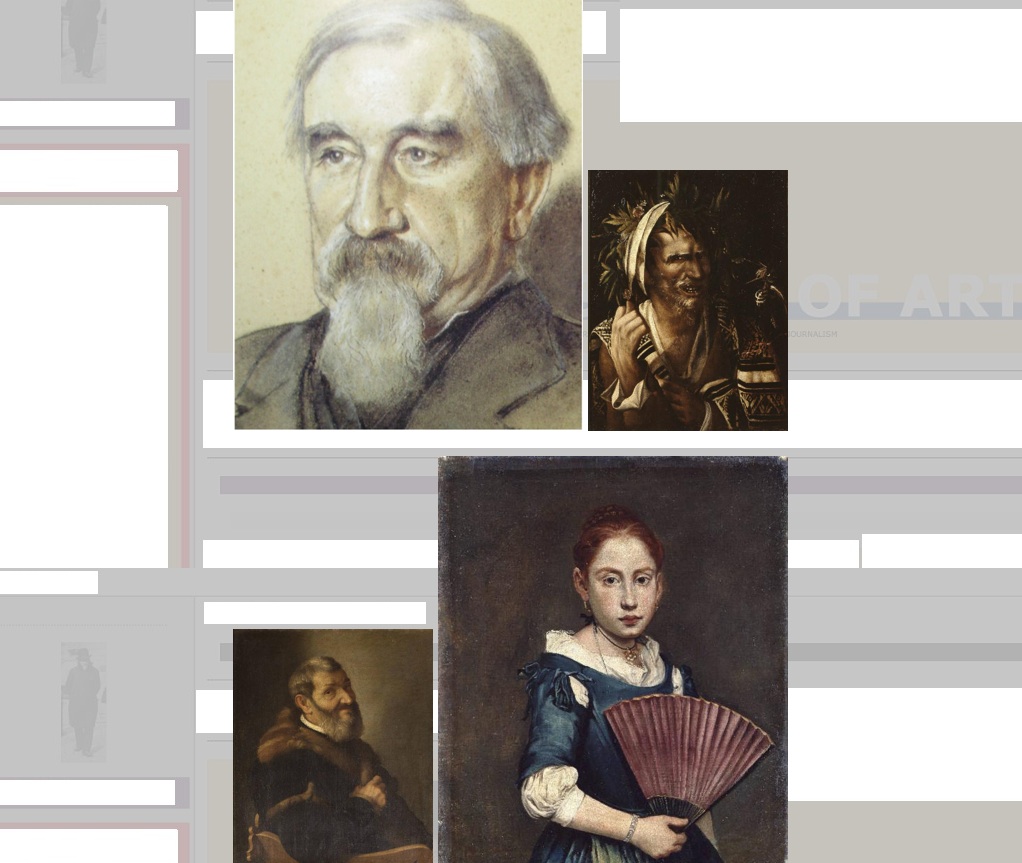
Thematic Features – an Index:
(direct links; a few seconds loading time is due to the necessary loading of the whole section with the respective feature)
FEATURE | Giovanni Morelli and Art Connoisseurship – Interim Report I (1833-1840)
FEATURE | Giovanni Morelli and Art Connoisseurship – Interim Report II (1840-1856)
FEATURE | Giovanni Morelli and Art Connoisseurship – Interim Report III (1857-1873)
FEATURE | Giovanni Morelli and the German Literary Scene of the Pre-March Era
FEATURE | Giovanni Morelli Experiencing Nature
FEATURE | Visiting Johann Wolfgang von Goethe and Alessandro Manzoni
FEATURE | Giovanni Morelli in 1848/49
FEATURE | Giovanni Morelli and Jacob Burckhardt
FEATURE | Giovanni Morelli and the Cholera
FEATURE | Giovanni Morelli Assisting Other Collectors
FEATURE | Giovanni Morelli and Giovanni Battista Cavalcaselle
FEATURE | Interiors of Connoisseurship
FEATURE | Giovanni Morelli and the Caricature
FEATURE | Giovanni Morelli and Russia
FEATURE | Giovanni Morelli and Raffaello Sanzio
FEATURE | A Virtual Guestroom
FEATURE | Giovanni Morelli and Crown Princess Victoria
FEATURE | Giovanni Morelli and the Connoisseurial Tradition I: Antecendents
FEATURE | Giovanni Morelli and the Connoisseurial Tradition II: Followers and Heirs
FEATURE | Giovanni Morelli and Sherlock Holmes
FEATURE | Giovanni Morelli and Wilhelm Bode
FEATURE | Giovanni Morelli and Vienna
FEATURE | Giovanni Morelli on Time, Progress and the Future of Science
FEATURE (outside The Giovanni Morelli Monograph) | Giovanni Morelli and Leonardo da Vinci
FEATURE (outside The Giovanni Morelli Monograph) | How to Tell Titian from Giorgione
MICROSTORY OF ART
ONLINE JOURNAL FOR ART, CONNOISSEURSHIP AND CULTURAL JOURNALISM
HOME
My book on Morelli’s apprentice Jean Paul Richter
can be ordered here (picture: buch.ch) 
TWO SUPPLEMENTS TO THE GIOVANNI MORELLI MONOGRAPH: 


Read online: http://www.seybold.ch/Dietrich/GreatestOfGreatLadiesOrTheThreeLivesOfDonnaLauraMinghetti
MICROSTORY OF ART
ONLINE JOURNAL FOR ART, CONNOISSEURSHIP AND CULTURAL JOURNALISM
HOME
© DS